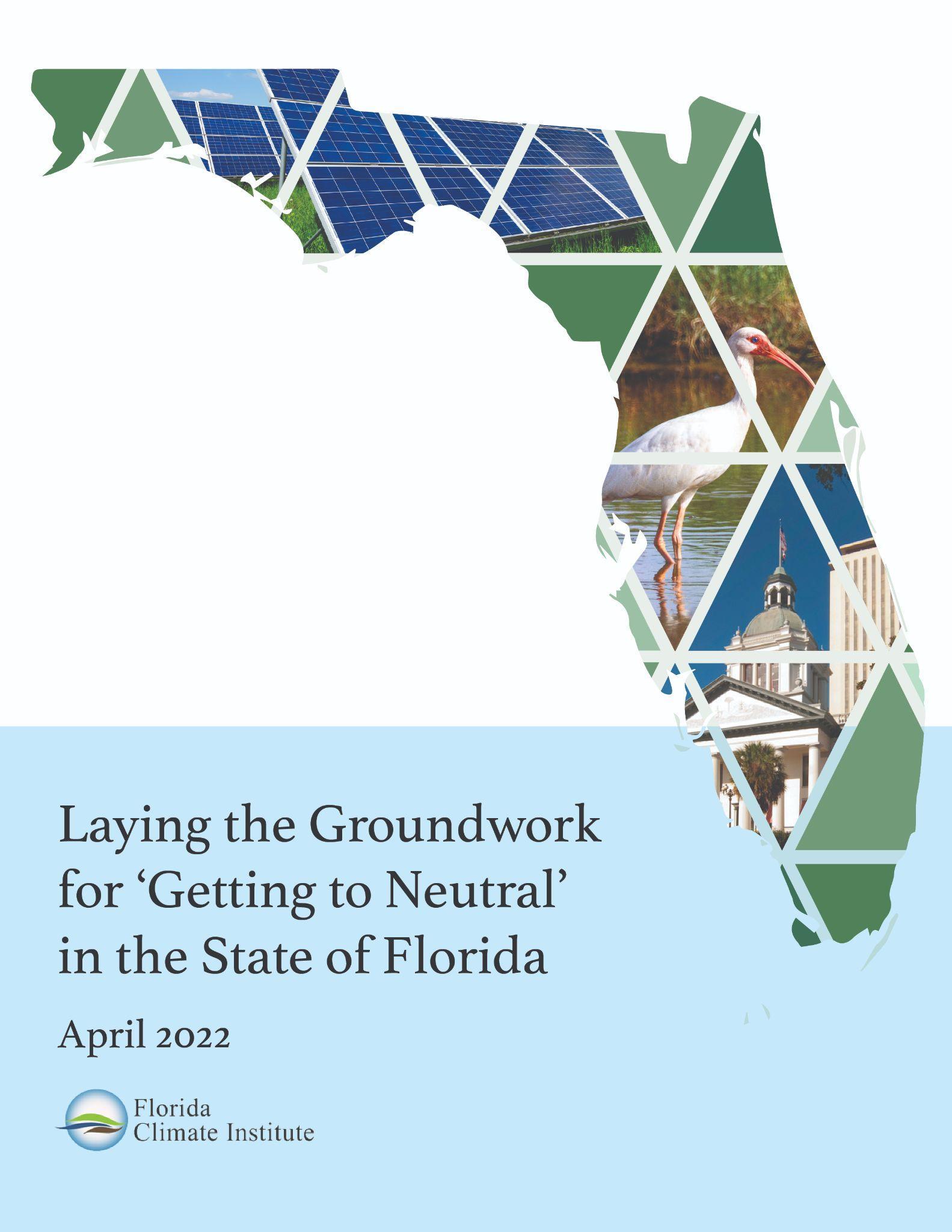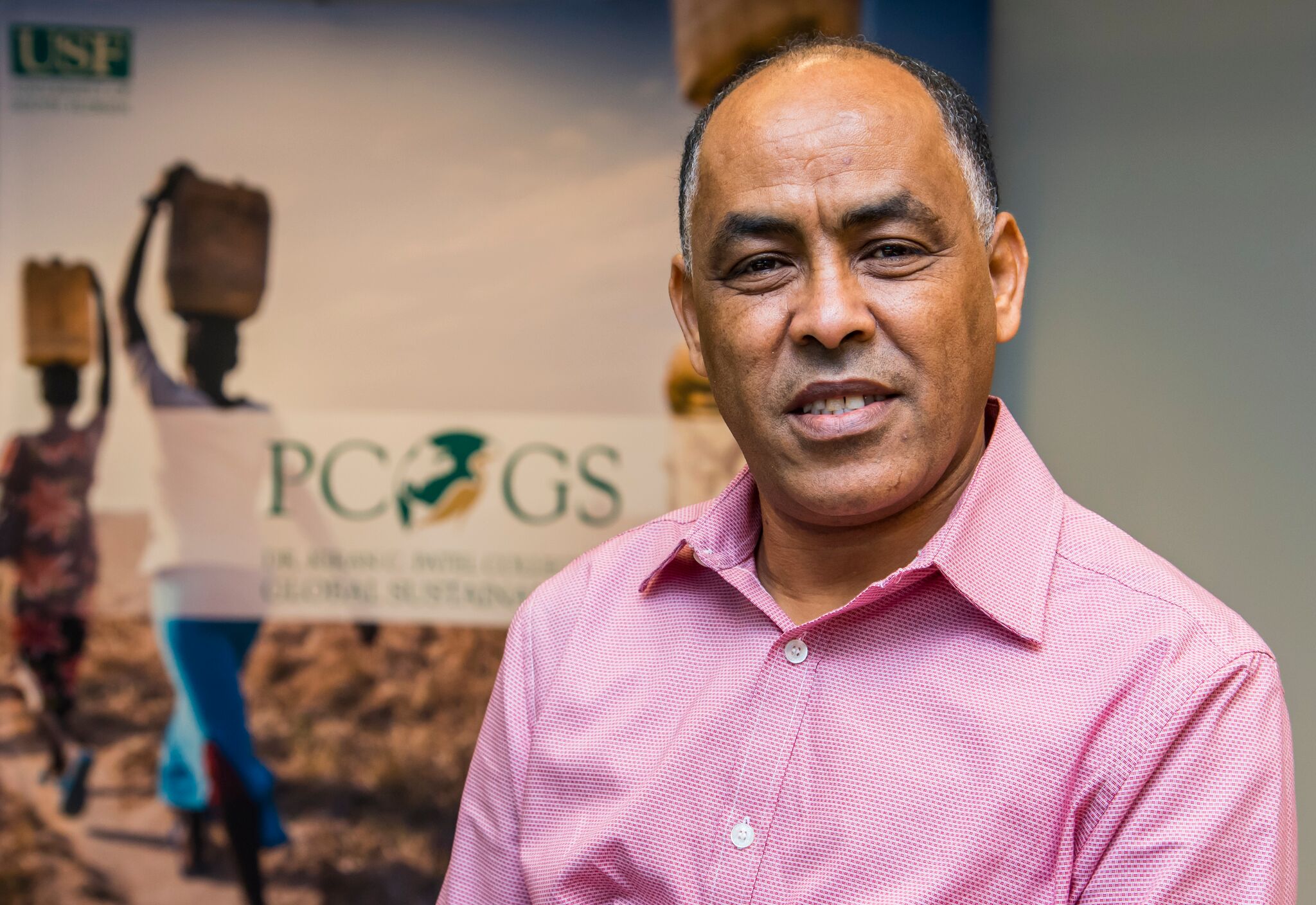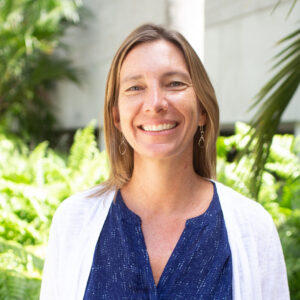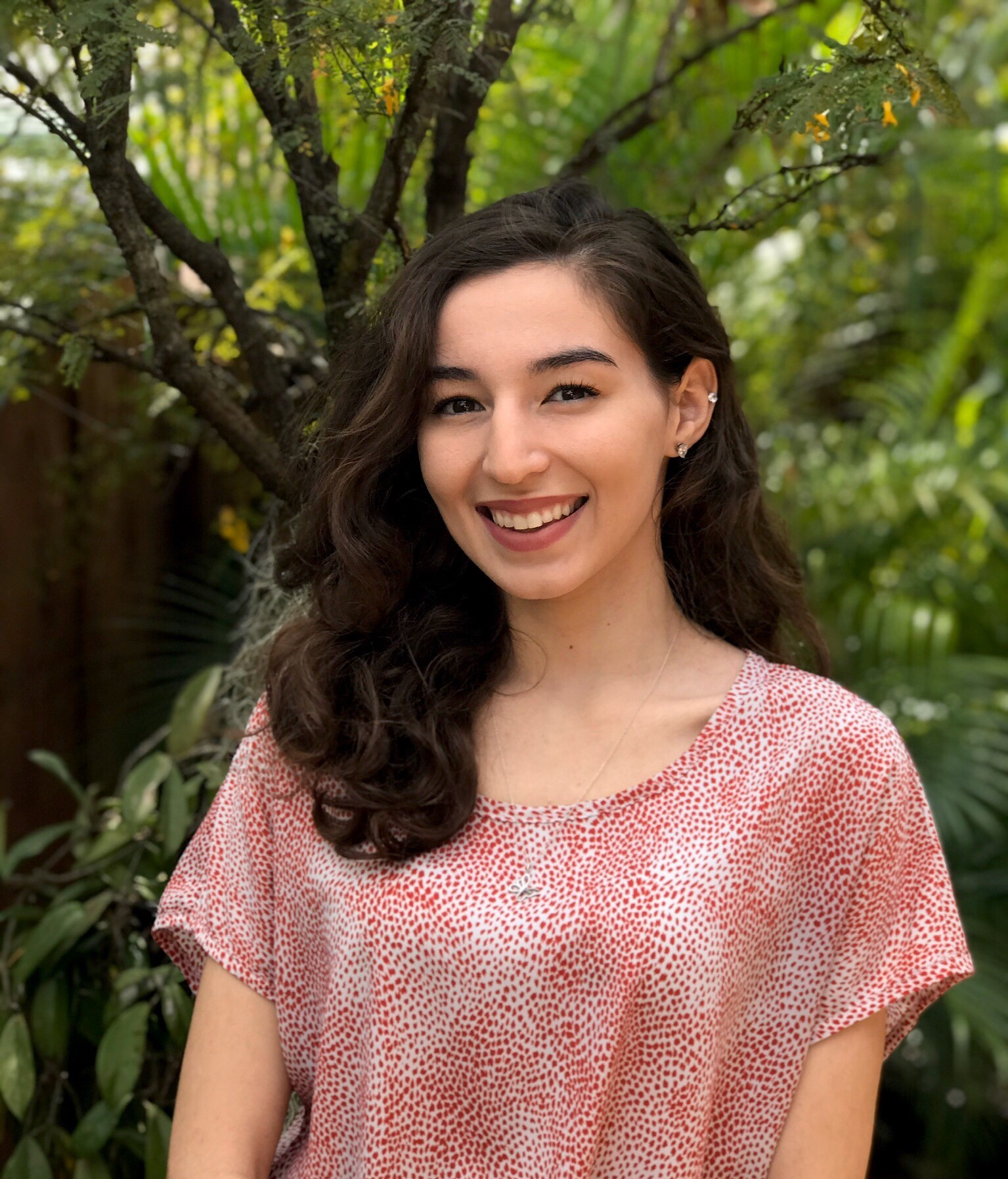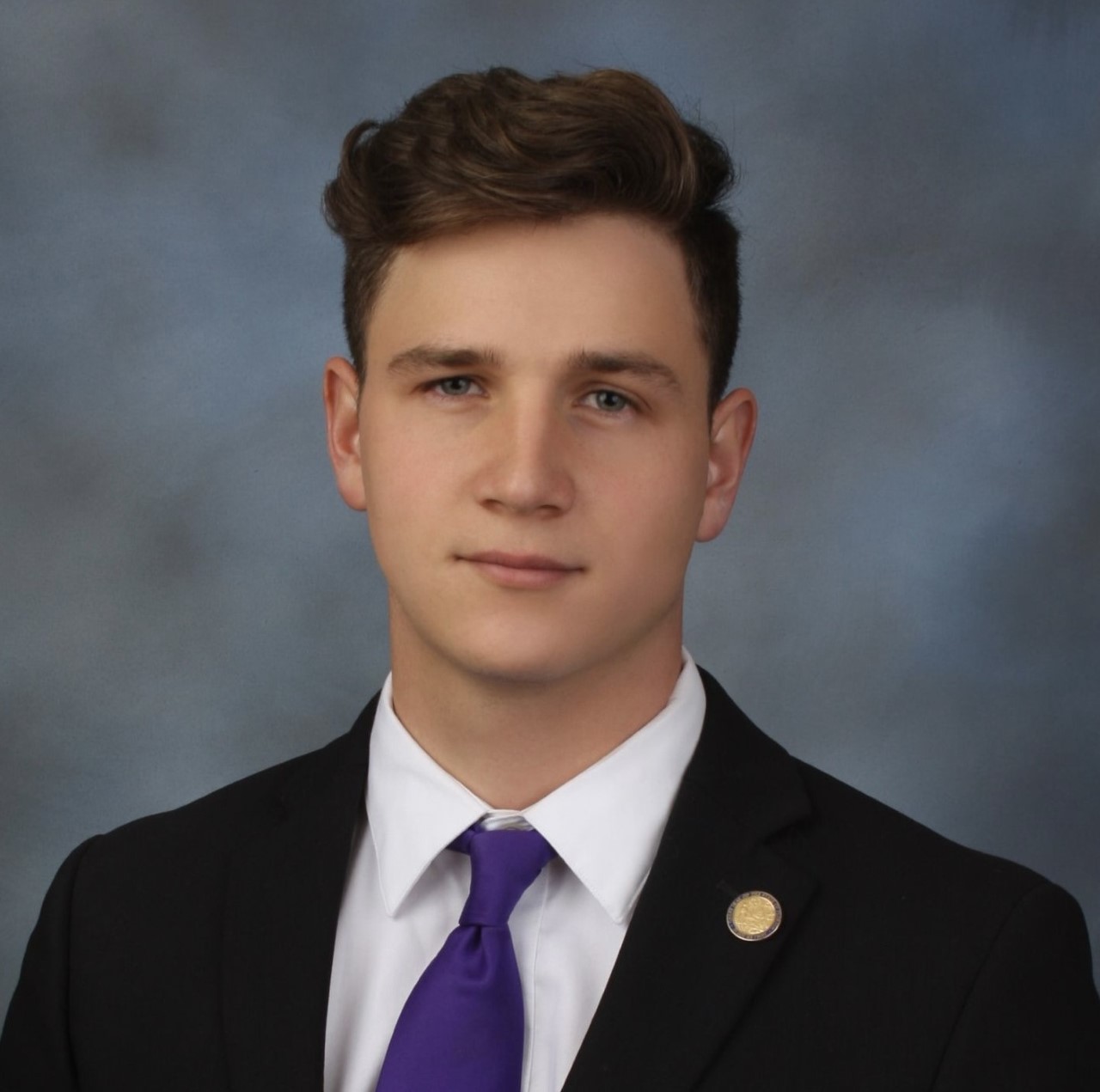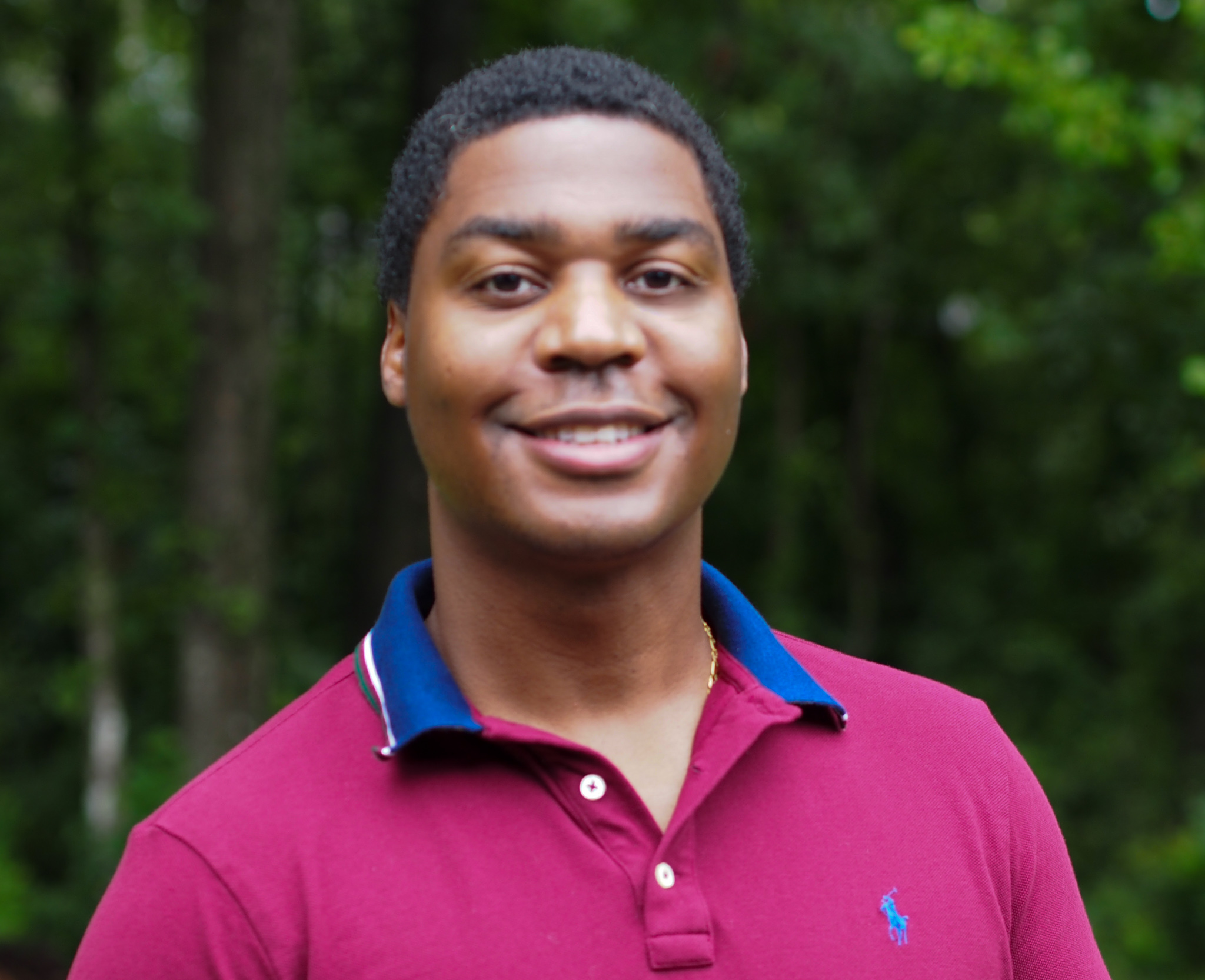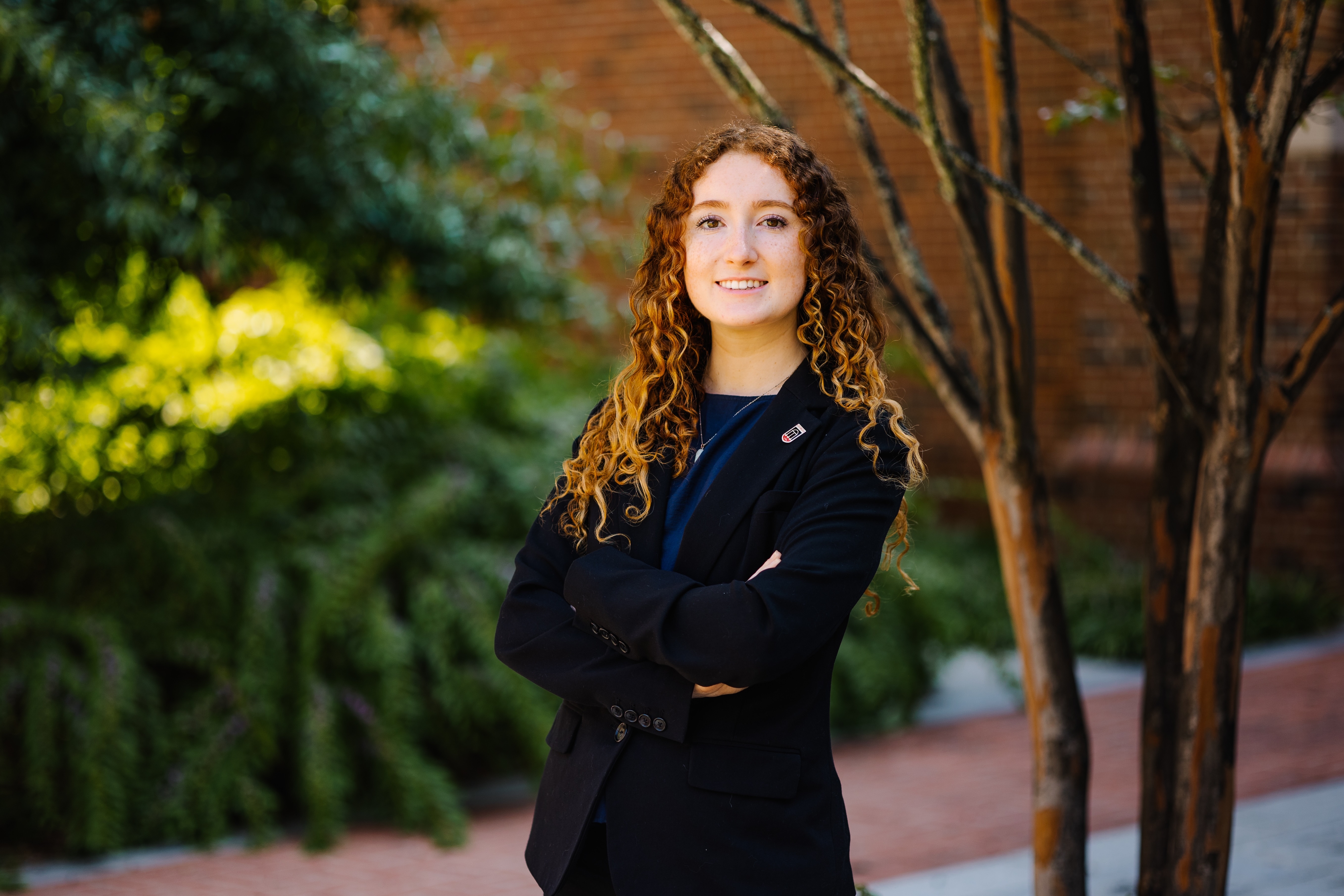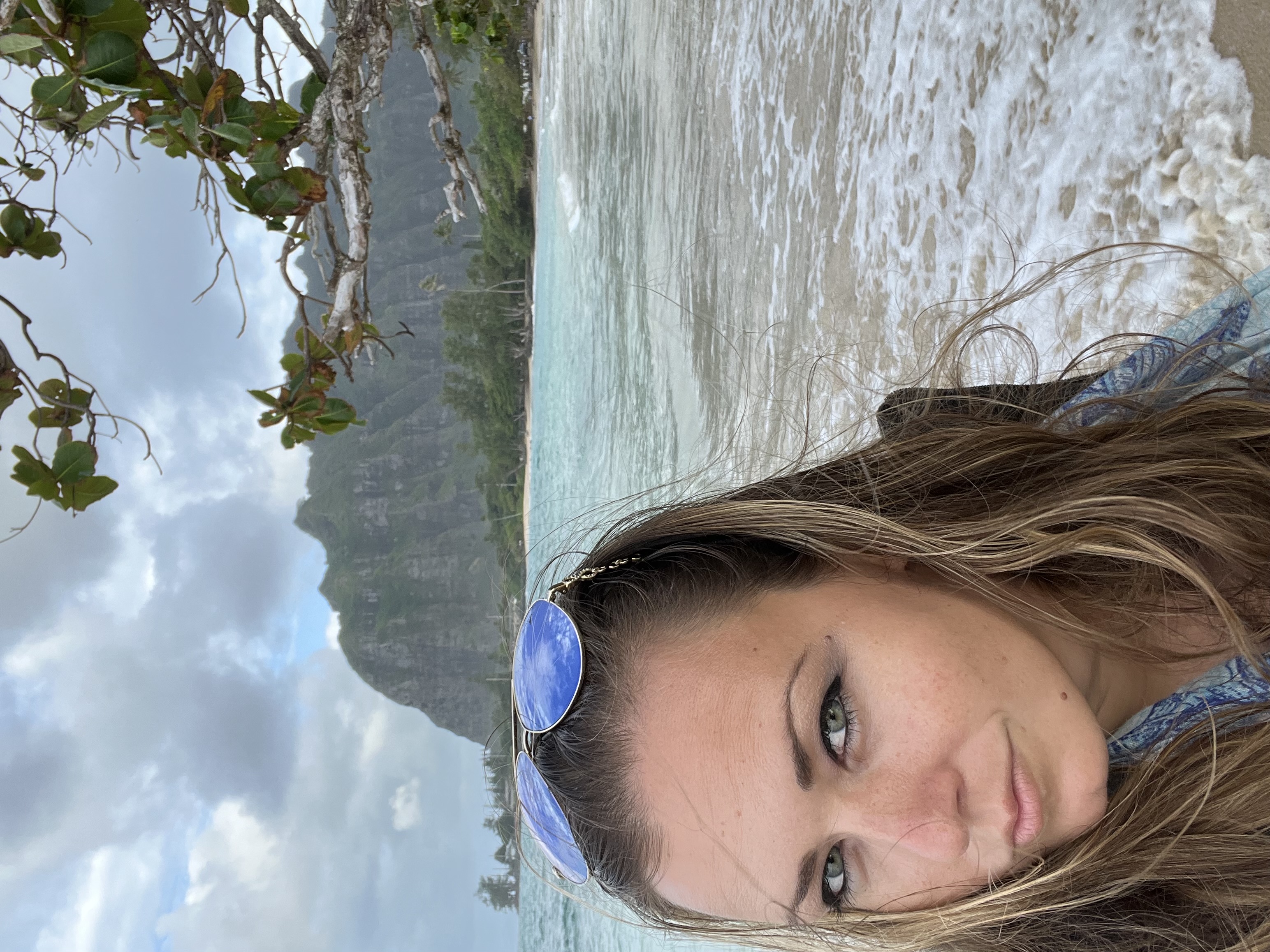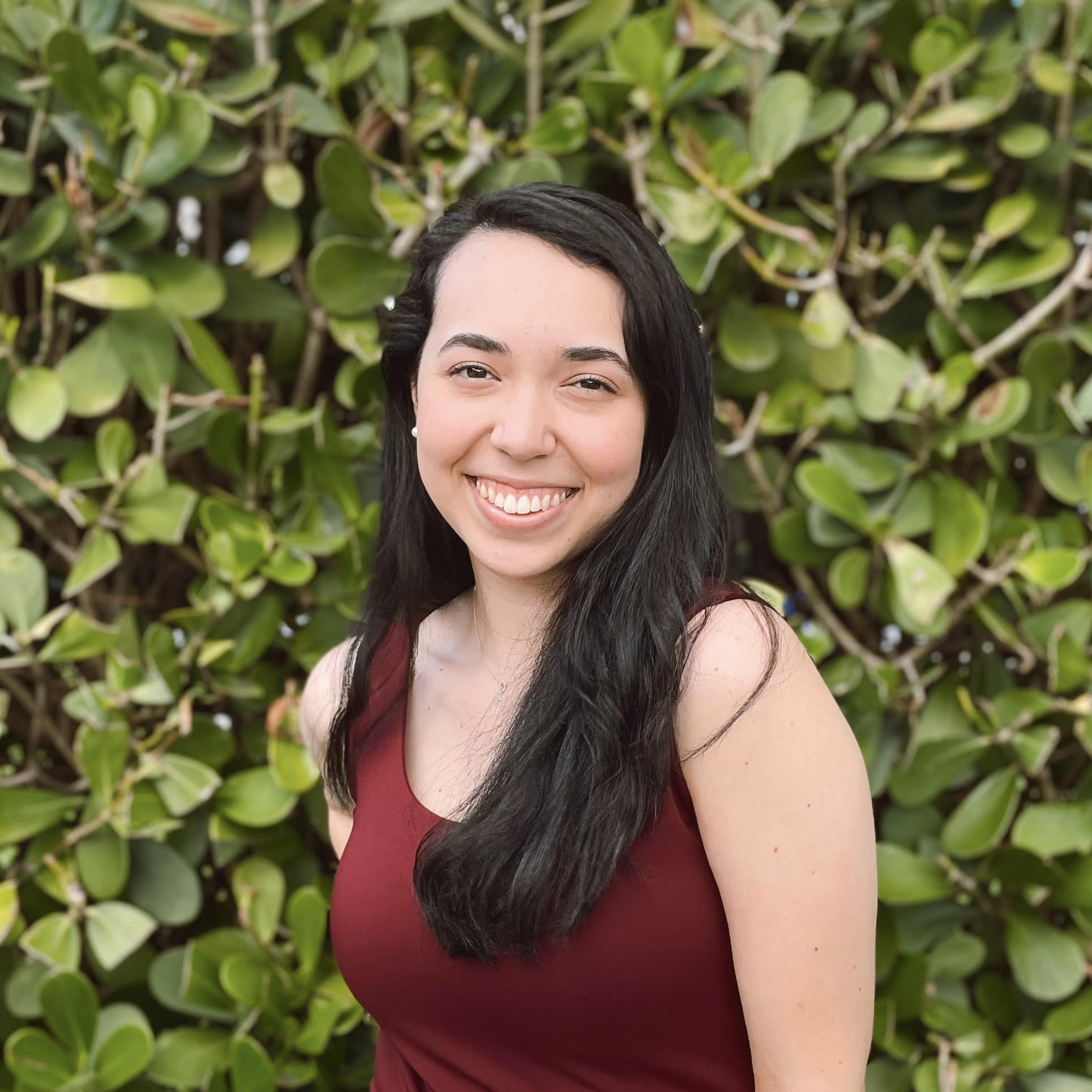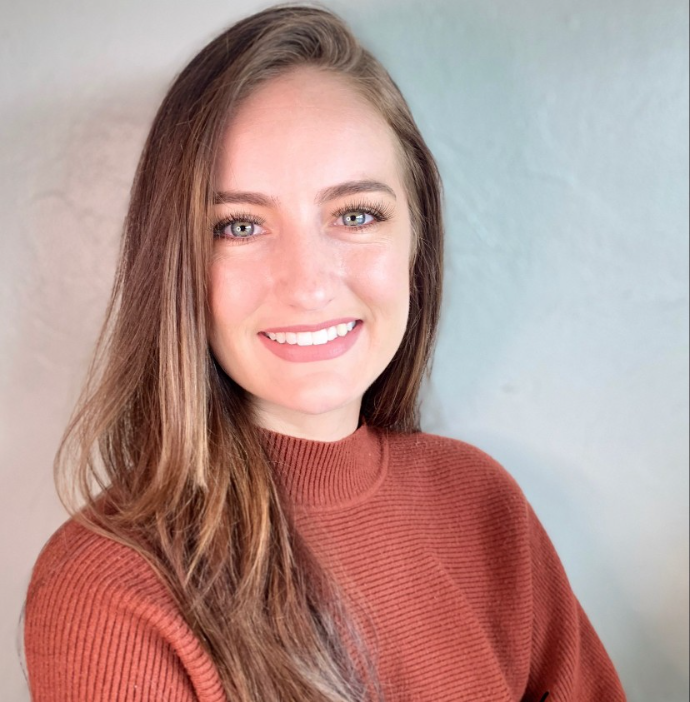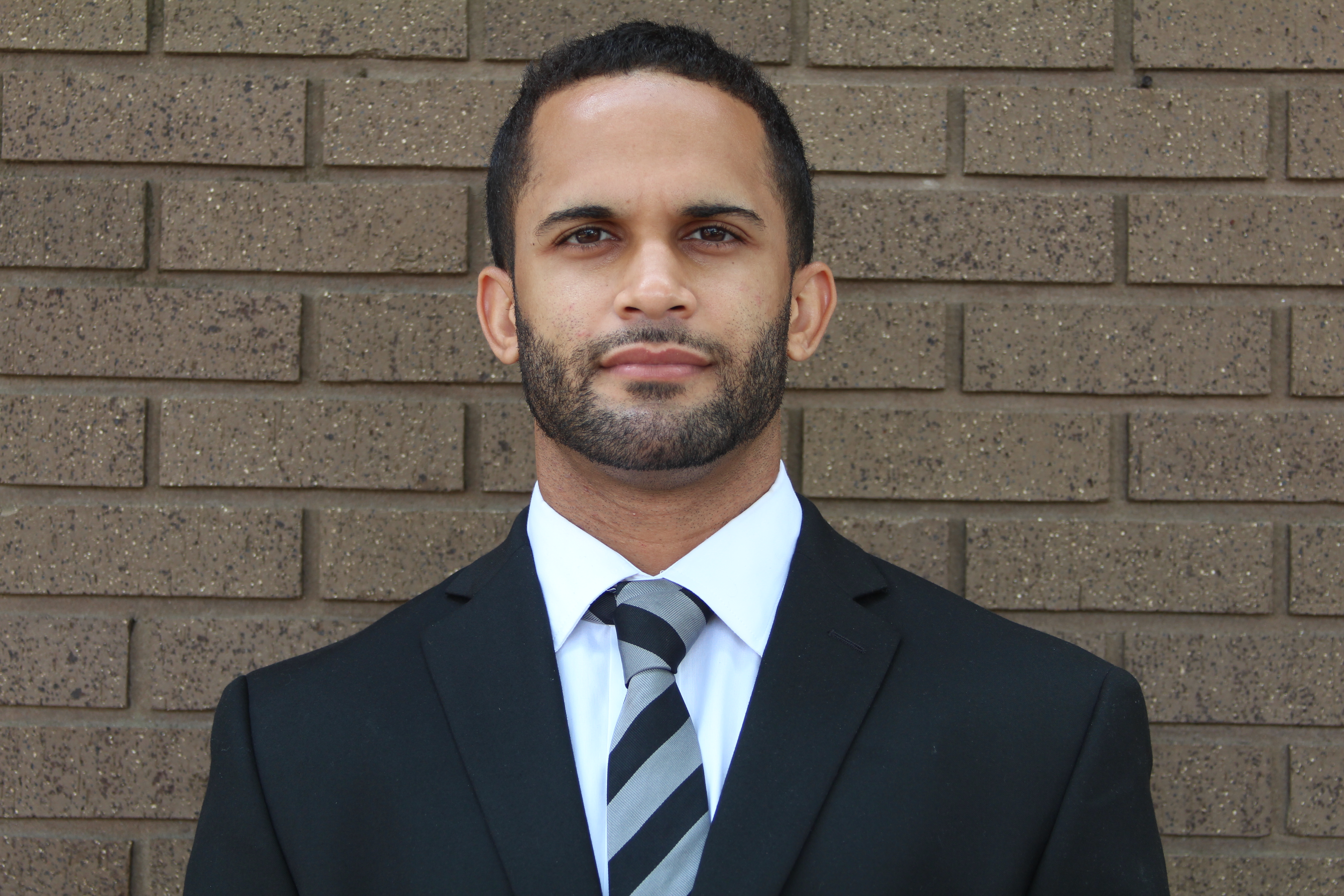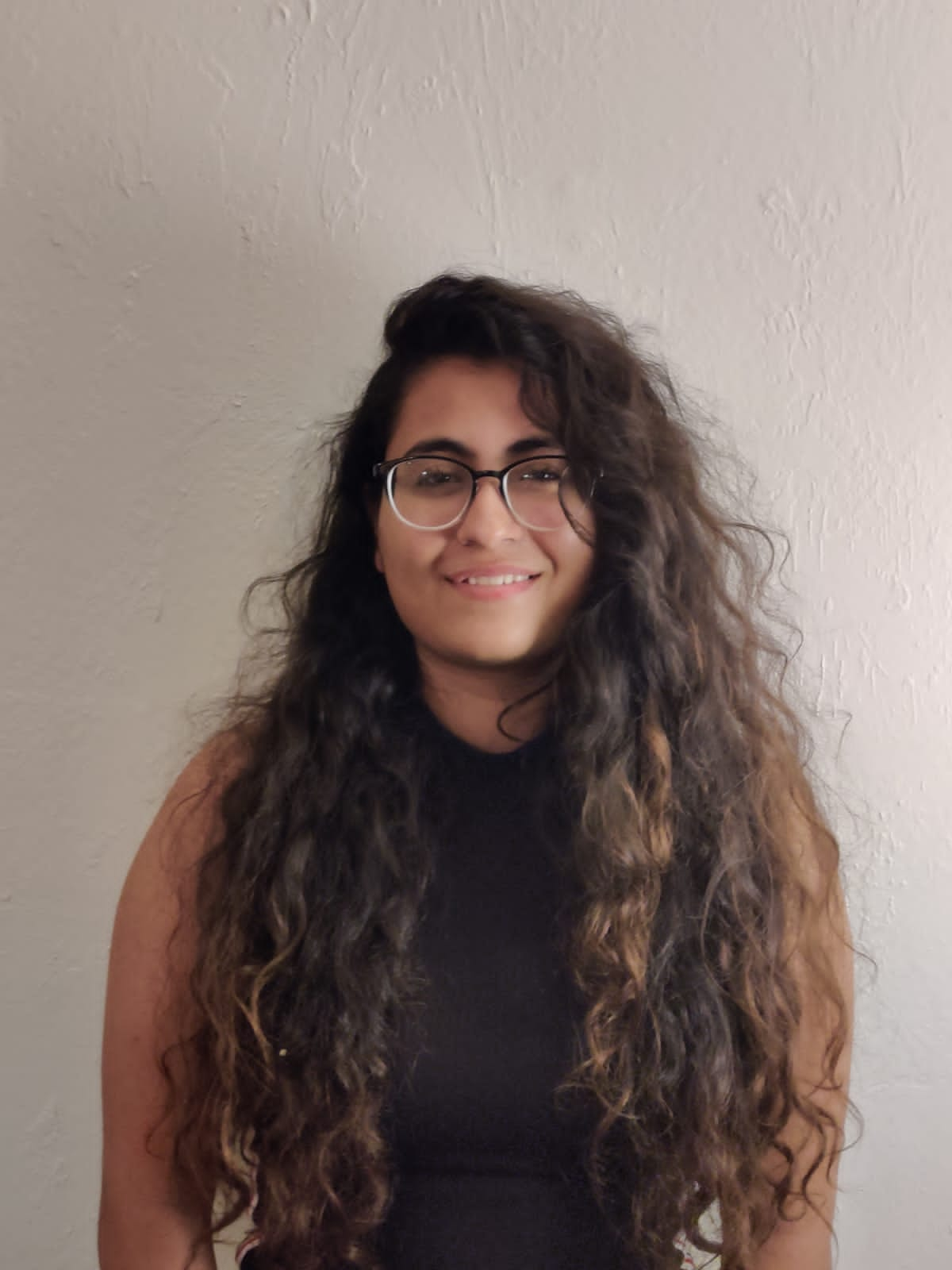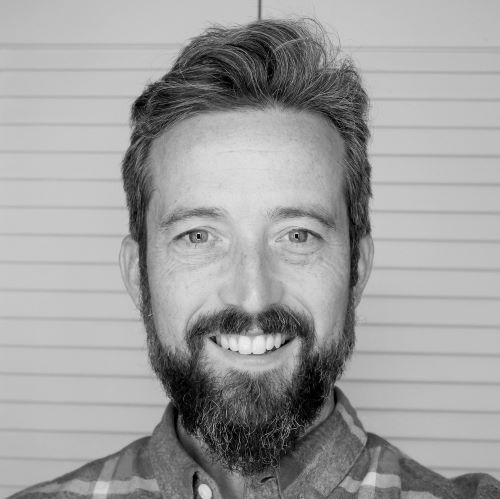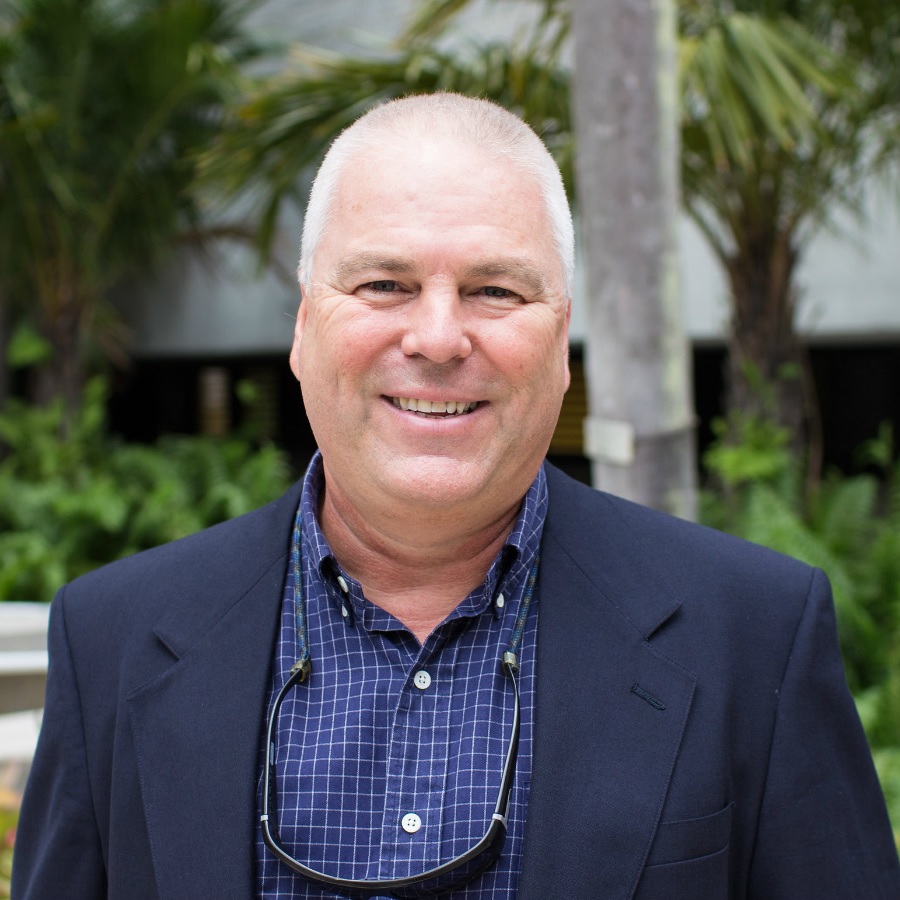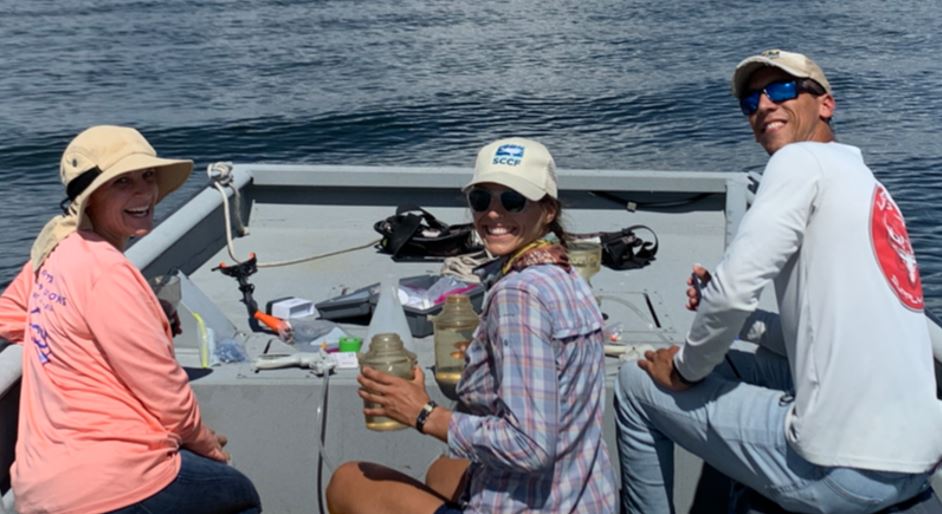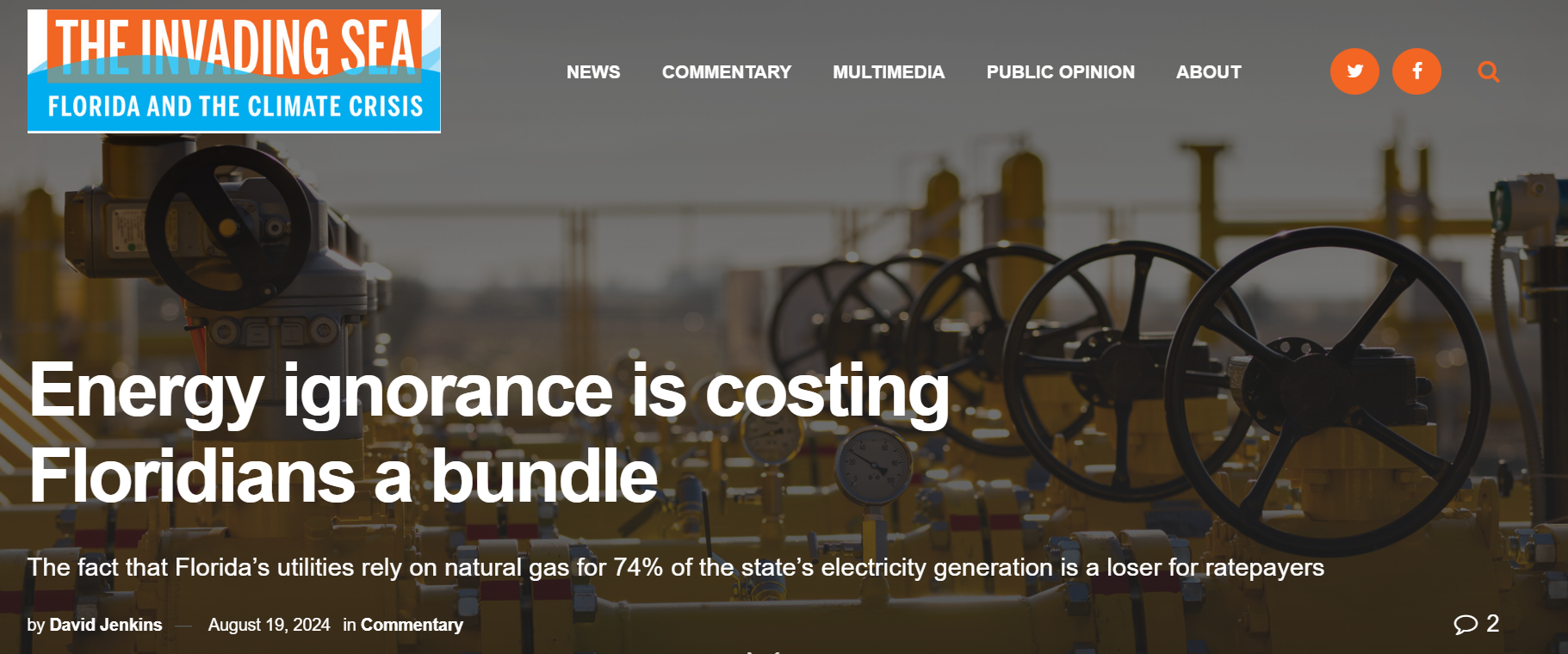News
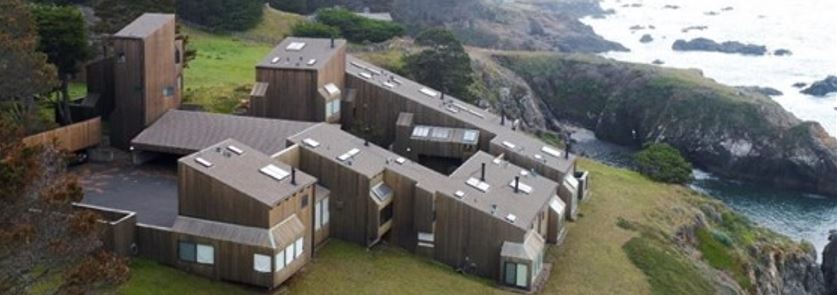
The UF Architecture senior studio, led by Jeff Carney, participated in the Envision Resilience Challenge again this year. Carolyn Cox of the FCI facilitates the academic programming that includes 7 university teams (URI, RISD, Brown, Northeastern Syracuse, U Florida, and Roger Williams) looking at the Narragansett Bay in Rhode Island to address climate impacts. 14 students from UF Architecture, 6 from UF Historic Preservation led by Linda Stevenson, and 3 from Journalism led by Cynthia Barnett have worked together toward solutions while better understanding diverse disciplinary approaches and team dynamics.
Stay tuned for final products that will be part of the multi-university exhibition held at the Waterfire Arts Center in Providence, RI from June 3-30.
Geoengineering is often framed as a tool for climate justice. Our study challenges that idea, showing that solar geoengineering would create regional tradeoffs and potentially increases in malaria risk worldwide.
Our study is the first to project the impacts of solar geoengineering - an emergency intervention to reduce the effects of global warming, in theory particularly for vulnerable frontline populations - on an infectious disease. We focus on malaria, which doesn’t increase linearly with temperature (i.e., warmer isn’t necessarily more malaria; cooler isn’t necessarily less).
In any scenario, geoengineering will probably shift malaria risk around continents, creating regional trade-offs in health outcomes within the Global South. But in the kind of extreme warming scenario where geoengineering might be most appealing, we find that deploying geoengineering would increase (or rather, reverse a decline of) malaria population at risk by roughly a billion people.
The study raises fairly major questions given that geoengineering is often framed around life-saving solutions for poor and vulnerable populations. The study was funded by a project called DECIMALS that revolves around projecting impacts of geoengineering on developing countries (and giving them more of a voice in the science - our project is a collaboration with icddr,b in Bangladesh and the Climate Risk Lab at the University of Cape Town), and highlights the need to bring the health sector into those conversations.
Carlson CJ, Colwell R, Hossain MS, Rahman MM, Robock A, Ryan SJ, et al. Nat Commun. 2022;13: 2150.
doi:10.1038/s41467-022-29613-w
The U.S. Global Change Research Program (USGCRP), in collaboration with the Office of Science and Technology Policy, requests comment from the public on its draft Decadal Strategic Plan.
USGCRP seeks feedback on program priorities and accompanying narrative in the strategic pillar sections. Respondents should consider (i) ideas on emerging, large-scale scientific questions related to global change and/or societal response, especially those where interagency collaboration will be critical; (ii) specific information on how science is or is not being used to inform societal response to global change, and why; and (iii) knowledge gaps and obstacles to implementing scientific tools or knowledge.
Please refer to the Federal Register Notice for full information.
Individuals wishing to participate in the public review of the draft 2022–2031 USGCRP Strategic Plan must register via the USGCRP Review and Comment System to access the draft.
The deadline to submit comments is 11:59 PM ET on July 15, 2022.
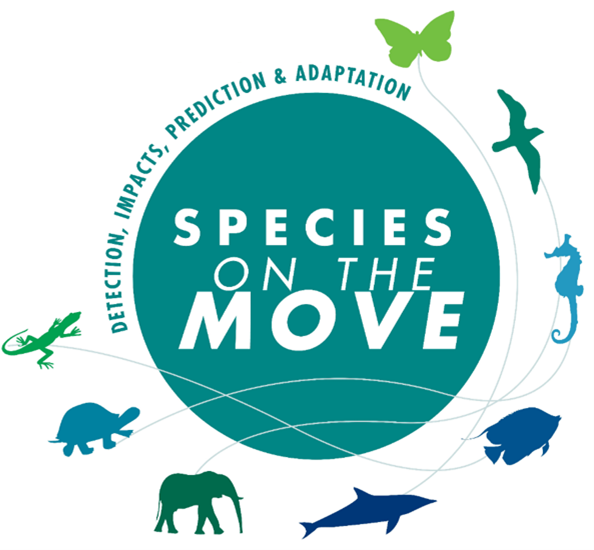
This 3rd iteration of the international conference series will be hosted by UF Wildlife and the Florida Climate Institute and be held in SW Florida to explore the Everglades.
The conference brings together scientists and natural resource managers working in the disciplines of global change, biogeography and evolution, and relevant in contexts of natural resource management, biodiversity management and conservation, and theoretical ecology.
Species response to climate change is a rapidly evolving research field, however, much of our progress is being made in independent research areas: e.g. understanding the process vs responding to the implications, terrestrial vs marine ecosystems, global meta-analyses vs in depth species-specific approaches. This interdisciplinary conference develops connections between these parallel themes, and across temporal and spatial scales.
For more information, themes, and to be notified of the call for abstracts, visit https://pwd.aa.ufl.edu/sotm/
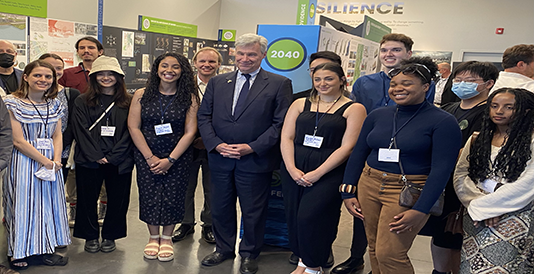
Senator Sheldon Whitehouse was impressed by UF students from Architecture, Historic Preservation, and Journalism who participated in a 6-university challenge to reimagine Narragansett Bay coastal communities during this past semester. All teams traveled to the sites, interacted with local residents and experts, participated in a 10-week lecture series, and created inspiring visions for the future of the Bay.
Professor Jeff Carney led his second group of Architecture students in the Envision Resilience Challenge this year after a huge success in Nantucket last year. Linda Stevenson led the Historic Preservation students and Cynthia Barnett the Journalism students.
This program, coordinated by Carolyn Cox, offers students the chance to work across disciplines, across universities, and within real communities to make an impact while gaining professional experience. This year’s teams hail from UF, Northeastern, Syracuse, Roger Williams, U Rhode Island, and the Rhode Island School of Design (RISD).
Student work will be on exhibit at the Waterfire Arts Center in Providence, RI through June 26.
For more information, see https://www.envisionresilience.org/.
Laying the Groundwork for 'Getting to Neutral' in the State of Florida
Florida Climate Institute’s Laying the Groundwork for ‘Getting to Neutral’ in the State of Florida report is the product of multiple research-driven collaborative processes compiled together with the purpose of setting a foundation for a net-zero action planning effort in Florida. The first key aspect of the project included performing a greenhouse gas (GHG) inventory of emissions and removals from the years 1990 to 2018, which was accomplished through the resources from the Intergovernmental Panel on Climate Change (IPCC) and the Environmental Protection Agency (EPA). Using the information gathered from the inventory, GHG emissions projections were made under three future scenarios: 1. Business-As-Usual, 2. 100% clean electricity by 2035, and 3. Net-zero emissions by 2050.
This project was developed by a group of university-student interns, faculty members from four Florida universities, researchers, and a private consultant, as well as through the support provided by several federal agencies, departments, and groups such as the United States Environmental Protection Agency (EPA), Florida Department of Environmental Protection (FDEP), the United States Department of Agriculture (USDA), and the National Oceanic and Atmospheric Administration (NOAA).
The report includes an executive summary establishing background information for the paper, a greenhouse gas emissions inventory for the state of Florida from the years 1990 to 2018, greenhouse gas emissions projections for the state of Florida from 2019 to 2050, net-zero action planning efforts for potential emission reductions in the future, and appendices for the inventory and projections.
This project was made possible with generous support provided by the Environmental Defense Fund (EDF) and the VoLo Foundation.
Suggested Citation: Ghebremichael, K., T. Troxler, A. Hernandez, R. Fourqurean, L. Jerome, K. Carroll, D. Moanga, H. Lazzaroni, S. Roy, J. Jenkins, J. McFarlane-Weinstein, A. Kaur, H. Knowles, S. Alvarez, M. Sukop, and J. Obeysekera, (2022). Laying the Groundwork for 'Getting to Neutral' in the State of Florida. Florida Climate Institute.
Report Authors
|
KebreAb Ghebremichael, USF Faculty |
Tiffany Troxler, FIU Faculty |
|
Alyssa Hernandez, FIU Staff/ |
Robert Fourqurean, FSU Student |
|
Lesly Jerome, UF Student Intern |
Kaitlyn Carroll, UGA Student Intern |
|
Diana Moanga, FIU Staff |
Hailey Lazzaroni, FIU Staff |
|
Sukanta Roy, FIU Student Intern |
Jazmyn Jenkins, USF Student Intern |
|
Jonathan McFarlane-Weinstein, |
Ashpreet Kaur, UF Staff |
|
Hal Knowles, UF Faculty |
Sergio Alverez, UCF Faculty |
|
Michael Sukop, FIU Faculty |
Jayantha Obeysekera, FIU Faculty |
Contents
Terms and Conditions: Readers may view, browse, and/or download material for temporary copying purposes only, provided these uses are for noncommercial personal purposes. Except as provided by law, this material may not be further reproduced, distributed, transmitted, modified, adapted, performed, displayed, published, or sold in whole or in part, without proper attribution or written permission from the Florida Climate Institute.
Executive Summary (pg. 6)
1. Summary of Findings
2. Emission Projections (2019-2050)
3. Key Recommendations for Net-Zero Action Planning
Acknowledgements (pg. 17)
Acronyms & Key Terms (pg. 18)
Greenhouse Gas Emissions Inventory (pg. 21)
1. Introduction
2. Overview of Approach and Methodology
3. Summary of Findings
4. Total and Net Emissions
Greenhouse Gas Emissions Projections (pg. 46)
5. Introduction
6. Trends in GHG Emissions Under Different Scenarios
Net-Zero Action Planning (pg. 55)
7. Emission Reduction Potential of Specific Actions to Achieve Net-Zero by 2050
8. GHG Removals & Storage
9. Financial Mechanisms for Reductions, Removals, & Storage of GHGs
10. Potential State Policy Actions for Net-Zero Objectives
Appendices (pg. 100)
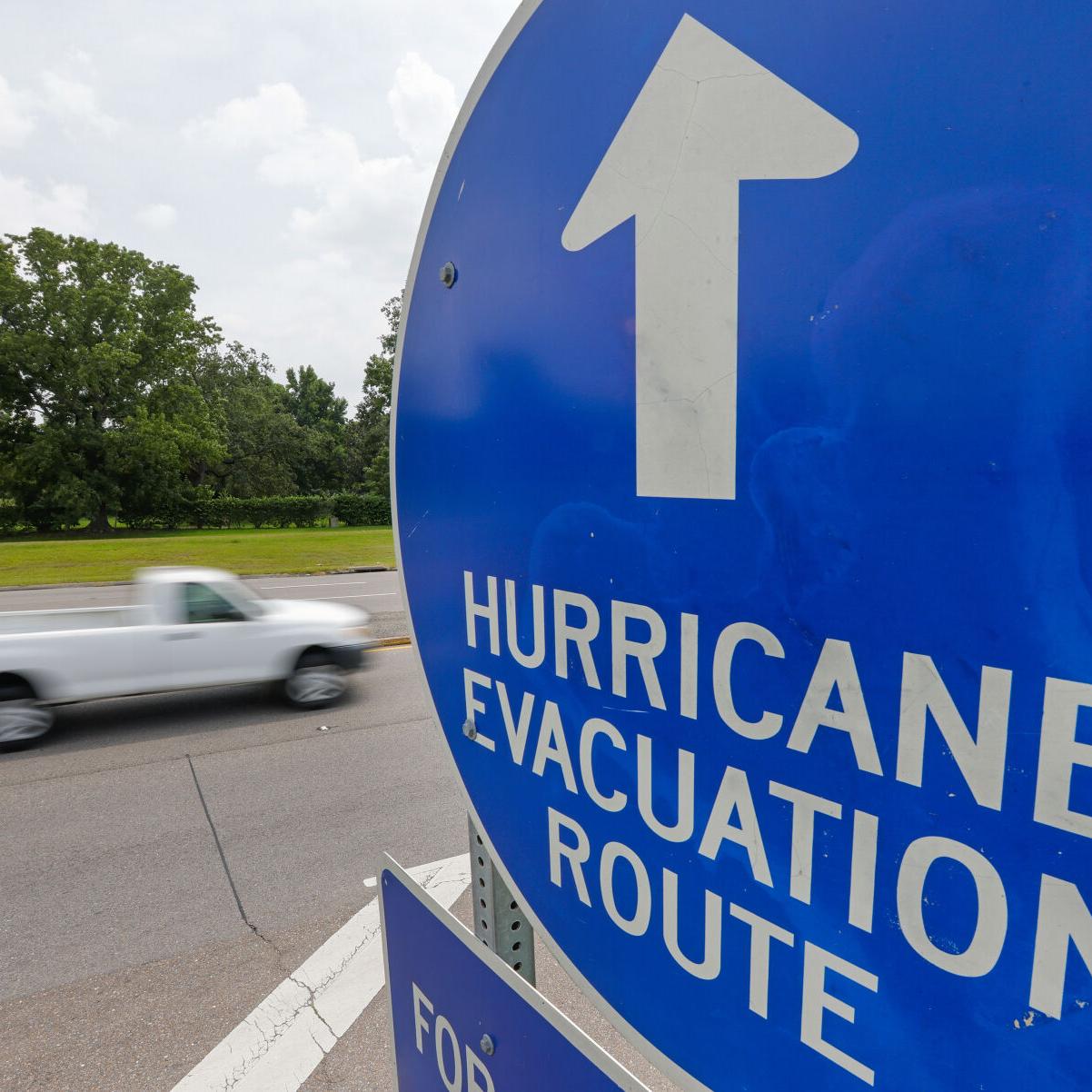
Researchers at the Florida Institute of Built Environment Resilience at UF are conducting a study about hurricane protective behaviors at institutions of higher education in Florida. They are looking into how housing conditions and physical characteristics of the built environment influence risk perception and intentions of protective behaviors for students, faculty, and staff, with the aim to improve emergency planning and disaster risk management at colleges and universities in Florida.
They will be conducting a large survey and are interested in three campuses in particular; Florida State University (FSU), University of Florida (UF), Florida International University (FIU). The survey should take around 15 minutes, and participants will have the chance to win one of three $150 visa gift cards. They would greatly value and appreciate support/collaboration from the Florida Climate Institute community of practice. For further information, please contact Amer (This email address is being protected from spambots. You need JavaScript enabled to view it.).
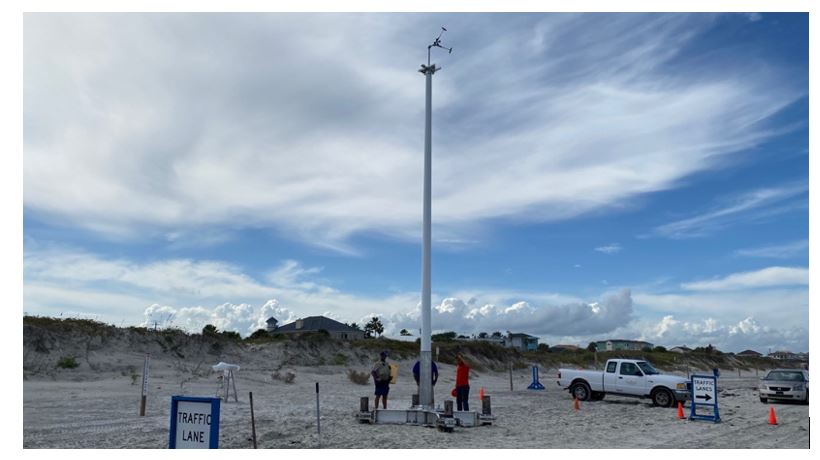 Hurricanes cause widespread interruption to meteorological and hydrological measurement stations exactly at the time when researchers and decision-makers need them most. To fill this observational gap, researchers led by Dr. Forrest Masters (UF) developed a state-of-the-art monitoring station, called a "Sentinel," engineered to operate in and measure extreme wind, storm surge, wave, and hazardous water quality conditions. This platform is currently being used to collect data in the Tampa area by this research group.
Hurricanes cause widespread interruption to meteorological and hydrological measurement stations exactly at the time when researchers and decision-makers need them most. To fill this observational gap, researchers led by Dr. Forrest Masters (UF) developed a state-of-the-art monitoring station, called a "Sentinel," engineered to operate in and measure extreme wind, storm surge, wave, and hazardous water quality conditions. This platform is currently being used to collect data in the Tampa area by this research group.
In 2021, a Mark I Sentinel was designed and prototyped. In contrast to permanent stations that are elevated and hardened to avoid/ resist flooding and waves, the station was designed for temporary installation at the shoreline between the mean tidal datum and the sand dunes. Its system was designed to resist 5 m breaking waves in a 5 m still water depth, accounting for 1 m of combined erosion and pile scour. Data such as 3D wind velocity, pressure, temperature, humidity data, and videos are collected at the top of the mast.
This year, the team, including Dr. Brian Phillips (UF), Dr. Forrest Masters (UF), Dr. Britt Raubenheimer (Woods Hole Oceanographic Institute), Dr. Maitane Olabarrieta (UF), Dr. Elise Morrison (UF), Dr. Chris Ferraro (UF), and Dr. Justin Davis (UF), received an NSF Major Research Instrumentation award to support the design of a Mark II Sentinel system and the commissioning of a fleet of six Mark II Sentinels.
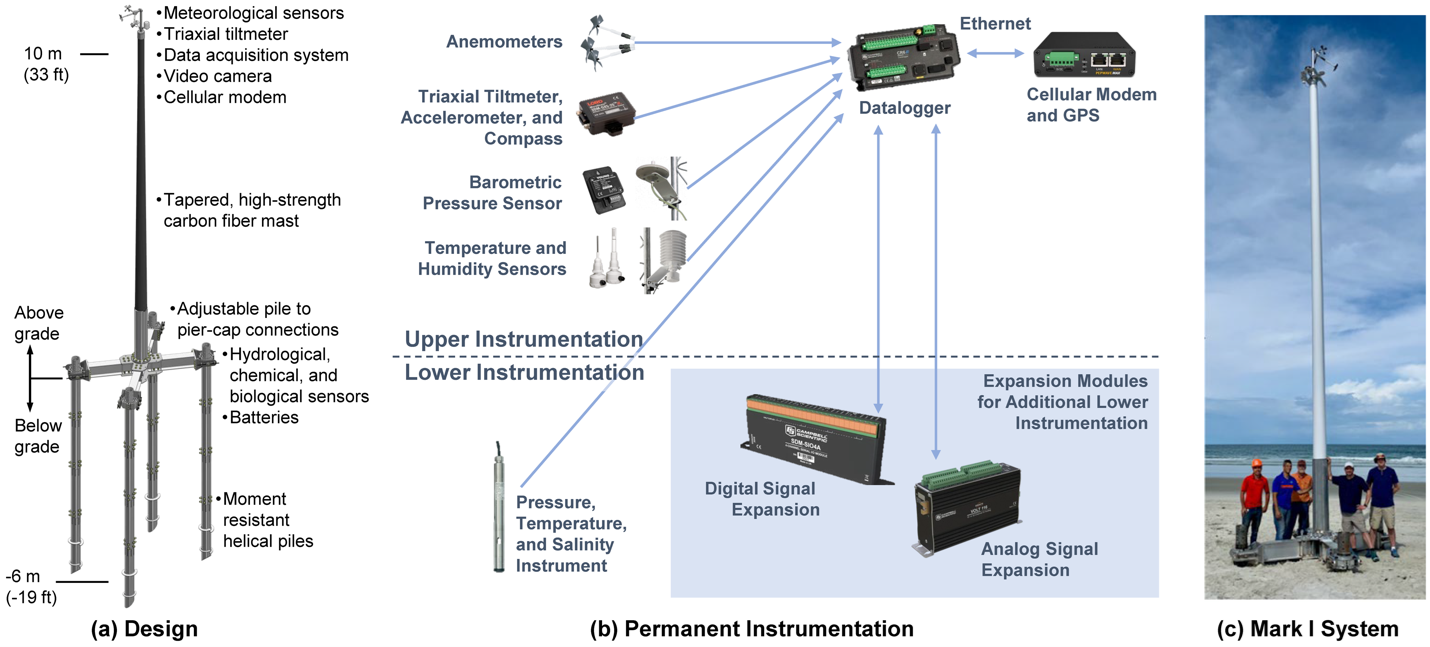
Data and video will be shared with a broad spectrum of research, operational, and commercial partners as well as interests supporting local response and recovery, such as state departments of environmental protection or natural resources. These stations will support fundamental research that includes, but is not limited to, numerical weather prediction, storm surge, shallow wave modeling, boundary layer meteorology, air-sea interaction, biogeochemistry, aircraft- and satellite-based remote sensing of the surface wind and wave fields, and hydrodynamic loading of coastal structures. We wish the team smooth, safe conditions for their deployment this week!

This week-long event with guest speakers was designed to help you understand the impacts our changing climate is having on the Sunshine State. Industry leaders and front-line advocates spoke about the effects climate change is having in your community, and how to become a part of the solution to ensure a sustainable planet for future generations.
Hear Tiffany Troxler (FIU) and Kebreab Ghebremichael (USF) discuss Laying the Groundwork for 'Getting to Neutral' in the State of Florida- Presented by Florida Climate Institute Watch recorded session at:
https://www.youtube.com/watch?v=byrJD224y0w&list=PLzDGN_mfeF7_chlVE-EV8vLYLgdeSvttm&index=6

A new threat has become apparent: Arctic lakes are drying up, according to research published in the journal Nature Climate Change. The study, led by UF Department of Biology postdoctoral researcher Elizabeth Webb, flashes a new warning light on the global climate dashboard.
Webb’s research reveals that over the past 20 years, Arctic lakes have shrunk or dried completely across the pan-Arctic, a region spanning the northern parts of Canada, Russia, Greenland, Scandinavia and Alaska. The findings offer clues about why the mass drying is happening and how the loss can be slowed.
The vanishing lakes act as cornerstones of the Arctic ecosystem. They provide a critical source of fresh water for local Indigenous communities and industries. Threatened and endangered species, including migratory birds and aquatic creatures, also rely on the lake habitats for survival.
Read more about Webb's findings here.
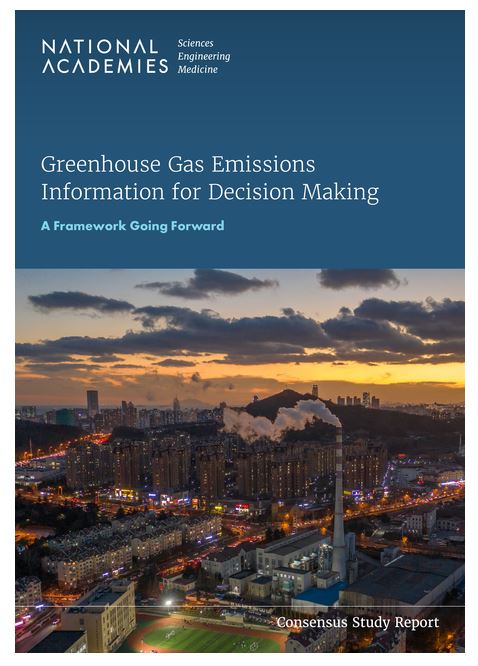 The National Academies of Sciences, Engineering, and Medicine set to release Greenhouse Gas Emissions Information for Decision Making.
The National Academies of Sciences, Engineering, and Medicine set to release Greenhouse Gas Emissions Information for Decision Making.
Climate change, driven by increases in human-produced greenhouse gases and particles (collectively referred to as GHGs), is the most serious environmental issue facing society. The need to reduce GHGs has become urgent as heat waves, heavy rain events, and other impacts of climate change have become more frequent and severe. Since the Paris Agreement was adopted in 2015, more than 136 countries, accounting for about 80% of total global GHG emissions, have committed to achieving net-zero emissions by 2050. A growing number of cities, regional governments, and industries have also made pledges to reduce emissions. Providing decision makers with useful, accurate, and trusted GHG emissions information is a crucial part of this effort.
The full description and info on how to order available here
Dr. Savanna Barry led a team from UF to develop the proposal “Engaging Communities to Design Nature-based Solutions to Mitigate Climate-related Hazards” to the Gulf Research Program. The grant received funding to build on long-term Florida Sea Grant and IFAS Extension engagement with the City of Cedar Key on climate and coastal issues.
This project focuses on the importance of nature-based solutions as part of Cedar Key’s strategy to mitigate climate-related hazards. The project will work with citizens of Cedar Key to understand their preferences for mitigating the impact of erosion and rising seas on a critical road and park area in Cedar Key even as the project also seeks to improve water quality and stormwater flooding problems. This is an initial proposal to develop a conceptual design proposal. If the conceptual design is well received, the second phase is an application for funding to develop detailed engineering design. Other team members from UF include Dr. Michael Allen, Dr. Mark Clark, Dr. Jason von Meding, Dr. Xiao Yu, and Thomas Ruppert, Esq.
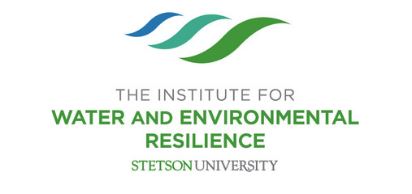 Stetson University’s Institute for Water and Environmental Resilience (IWER) received a Stage 1 Civic Innovation Challenge (CIVIC) planning grant from the National Science Foundation (NSF) for a project designed to help the City of Cape Canaveral reduce flooding and improve water quality in the face of rising seas. Jason Evans, PhD, IWER’s executive director and associate professor of Environmental Science, is the principal investigator for the project.
Stetson University’s Institute for Water and Environmental Resilience (IWER) received a Stage 1 Civic Innovation Challenge (CIVIC) planning grant from the National Science Foundation (NSF) for a project designed to help the City of Cape Canaveral reduce flooding and improve water quality in the face of rising seas. Jason Evans, PhD, IWER’s executive director and associate professor of Environmental Science, is the principal investigator for the project.
The overall goal of the project is for the partners to work with Cape Canaveral to implement and carefully measure the performance of nature-based infrastructure – such as rain gardens, constructed wetlands and permeable pavement – in areas with known flooding concerns.
Undergraduate students and community volunteers will assist researchers with the collection and interpretation of field data, providing a regional model for partnership and innovation in climate adaptation.
The CIVIC project builds upon several years of ongoing collaboration between IWER, the East Central Florida Regional Planning Council and Florida Sea Grant to characterize and quantify Cape Canaveral’s substantial flooding challenges. For example, IWER currently maintains a network of three advanced water-level sensors in Cape Canaveral, which together captured critical hydrologic data during several recent flooding events, including Hurricane Ian.
IWER is one of 56 teams across the country to receive a $50,000 Stage 1 planning grant through CIVIC, which is funded by NSF in partnership with the U.S. Department of Energy and U.S. Department of Homeland Security.
Read the full article in Stetson Today.
 University of Florida students are invited to participate in the 2nd Annual Campus Climate Corps Conference. The conference is in two parts, a 4-hour live, virtual event on Friday, November 4 from noon to 4pm and a series of hour-long daily briefings from the UN climate conference (COP27) from Nov 5 to Nov 18 in Sharm El Sheikh, Egypt.
University of Florida students are invited to participate in the 2nd Annual Campus Climate Corps Conference. The conference is in two parts, a 4-hour live, virtual event on Friday, November 4 from noon to 4pm and a series of hour-long daily briefings from the UN climate conference (COP27) from Nov 5 to Nov 18 in Sharm El Sheikh, Egypt.
Details available on Campus Climate Corps website
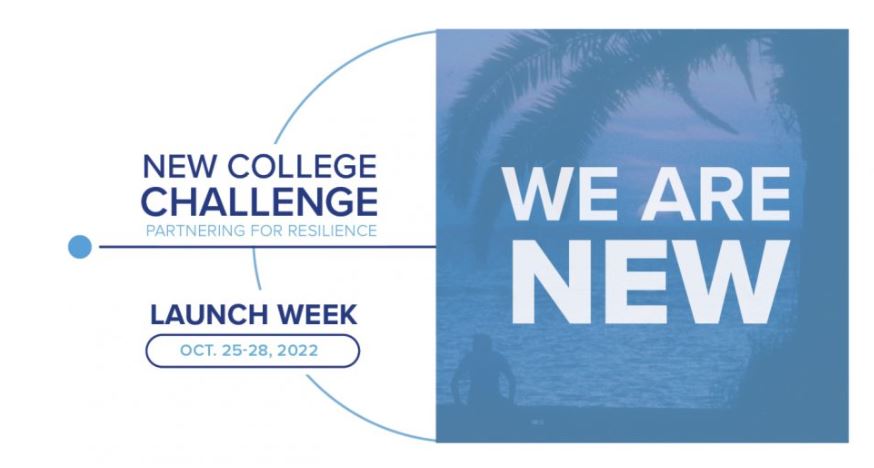 Three Florida Climate Institute partners will participate in the spring 2023 studio to reimagine NCF. Modeled after two multi-university, multi-disciplinary challenges in the Northeast, Envision Resilience, which studied Nantucket, MA and Narragansett Bay, RI, the New College Challenge aims to build partnerships with students, leaders from major statewide and national universities, and experts across key industries. These thought leaders will address the social, economic and environmental challenges that face New College and present a hopeful vision for the future.
Three Florida Climate Institute partners will participate in the spring 2023 studio to reimagine NCF. Modeled after two multi-university, multi-disciplinary challenges in the Northeast, Envision Resilience, which studied Nantucket, MA and Narragansett Bay, RI, the New College Challenge aims to build partnerships with students, leaders from major statewide and national universities, and experts across key industries. These thought leaders will address the social, economic and environmental challenges that face New College and present a hopeful vision for the future.
More info at https://www.ncf.edu/Challenge/
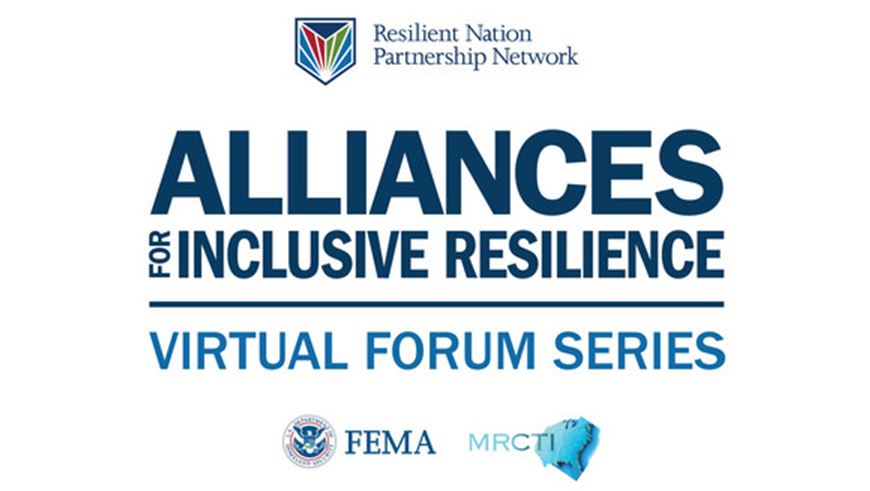 On Day One of the Forum, FEMA’s Acting Deputy Administrator for Resilience Victoria Salinas said that the RNPN represents the “whole community” because of the diverse array of invested community leaders from across the nation. Throughout the Forum, thousands of people joined the conversations, underscoring keen interest to further resilience.
On Day One of the Forum, FEMA’s Acting Deputy Administrator for Resilience Victoria Salinas said that the RNPN represents the “whole community” because of the diverse array of invested community leaders from across the nation. Throughout the Forum, thousands of people joined the conversations, underscoring keen interest to further resilience.
In case you missed any of the Forum presentations, here are videos from each day:
Day 1 – Social Cohesion: Making Access, Inclusion, and Equity Priorities in Resilience
Day 2 – Making Resilience Priorities Complementary
Day 3 – Inclusive Design: Building a Sense of Resilient Belonging
Day 4 – Voices of Inclusive Resilience
Wednesday, January 25, 2023 will be the formal kickoff of the Stories of Resilience initiative. Please save the date to learn more about Stories of Resilience and why storytelling is a critical tool for building community resilience.

By Thomas Ruppert
Florida’s coastal communities face unprecedented challenges with sea-level rise (SLR) as it permanently inundates areas and exacerbates typical coastal hazards. SLR creates novel legal and financial challenges as it impacts infrastructure for which local governments have legal and financial responsibilities. These challenges call for equally novel planning and policy development; such novel thinking, legal research, and drafting often exceed the capacities of small- and medium-sized local governments that frequently lack the staff bandwidth and specialization to independently conduct such work.
Florida Sea Grant (FSG) has, since 2012, been collaborating with the East Central Florida Regional Planning Council (ECFRPC) to provide legal and policy research, conduct trainings and outreach, and draft legal language for small- and medium-sized communities on Florida’s east central coast. The novel approaches developed by FSG have led the way for small- and medium-sized local governments in the region through approaches and planning policies that focus on grounding today’s policy and actions in long-term visions balancing desires for coastal protection and infrastructure services with the fiscal and physical realities of our changing coast. Areas of focus include comprehensive plan language seeking to minimize potentially crippling legal and fiscal liabilities for infrastructure and shifting the focus of infrastructure services from reactive to specific property owner complaints to proactive based on current and future scenarios focused on infrastructure services as part of a system serving communities of people. As part of the ECFRPC’s Regional Resiliency Collaborative and co-developer of the ECFRPC-led “Regional Resilience Action Plan,” FSG has been instrumental in developing policies and working with the ECFRPC to disseminate them.
FSG and Thomas Ruppert served as a driving force in the City of Satellite Beach’s adoption of Adaptation Action Areas language in their comprehensive plan—the first municipality in Florida to do so. In Ordinance 1160, Satellite Beach became the first municipality we are aware of in Florida to explicitly state in its land development code that its policies seek “to promote a managed retreat from the sensitive ocean bluff and Erosion Adaptation Action Areas.”[1] This represents a shift away from hard armoring of our coastlines and recognition of a changing future. Satellite Beach approved Ordinance 1194 on March 17, 2021. This ordinance adopted virtually verbatim extensive FSG comprehensive plan recommendations. Ordinance 1194 modified Satellite Beach’s Comprehensive Plan elements for Infrastructure, Coastal Management, Intergovernmental Coordination, Capital Improvements, and Future Land Use. As of January 2022, at least nine additional local governments in the ECFRPC’s region have adopted language drafted by FSG, edited by FSG, or drafted by the ECFRPC with input from FSG, including: Brevard County, Cape Canaveral, Cocoa, Melbourne Beach, New Smyrna Beach, Oak Hill, Rockledge, Titusville, and Volusia County. As part of the ECFRPC’s “Regional Resilience Collaborative,” more local governments in the area are expected to likely adopt language based on the resilience work of FSG and ECFRPC. In September of 2022, Satellite Beach adopted an ordinance and supporting documents created by FSG to integrate additional recommendations on notice of sea-level rise to permit applicants. FSG continues to collaborate with Satellite Beach and partners to move forward resilience in Satellite Beach and the many communities emulating Satellite Beach’s approach.
Florida Sea Grant is leading the way in developing holistic legal and planning examples for small- to medium-sized local governments attempting to balance local government fiscal constraints and the realities of sea-level rise through adaptations grounded in long-term visions informing short-, medium-, and long-term actions designed to maximize the quality of life, economic outlook, and safety of coastal governments on our changing coastline. Local governments are responding by adopting FSG-drafted/inspired language into their comprehensive planning for resilience and into ordinances.
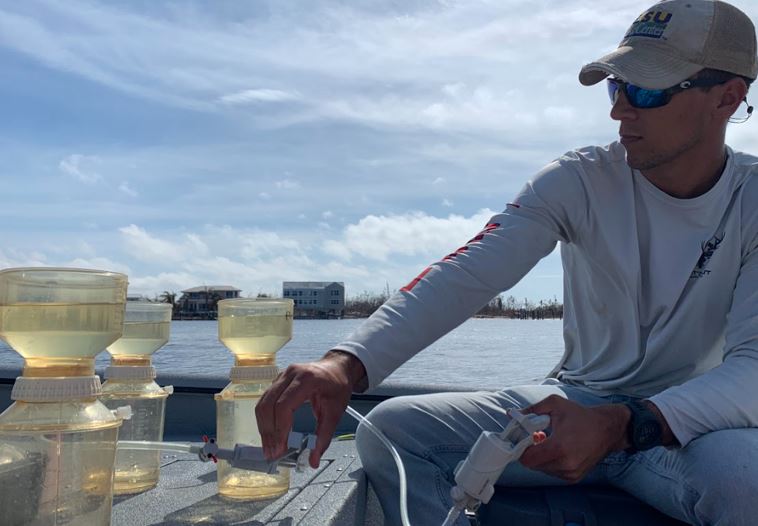 Hurricane Ian left behind a staggering trail of damage to communities and the environment in southwest Florida. A steady stream of response and recovery efforts, from emergency rescues to rebuilding of critical infrastructure, has been underway since the storm brought record breaking winds and rainfall. Alongside these efforts, the UF Center for Coastal Solutions has embarked upon a collaborative effort to understand how the hurricane affected water quality and ecosystems in the region.
Hurricane Ian left behind a staggering trail of damage to communities and the environment in southwest Florida. A steady stream of response and recovery efforts, from emergency rescues to rebuilding of critical infrastructure, has been underway since the storm brought record breaking winds and rainfall. Alongside these efforts, the UF Center for Coastal Solutions has embarked upon a collaborative effort to understand how the hurricane affected water quality and ecosystems in the region.
Quickly after landfall, the CCS and partners Captains for Clean Water, Coastal and Heartland National Estuary Partnership (CHNEP), Charlotte County, South Florida Water Management District (SWFWMD), Sarasota Bay Estuary, and Sanibel-Captiva Conservation Foundation (SCCF) mobilized to sample coastal waters for harmful algae, nutrients, oxygen, and fecal indicator bacteria.
These data are important for estimating the amount and types of pollutants that entered the estuary during the storm and understanding their impacts on human and ecological health. Beyond directly sampling and analyzing water quality, the CCS launched a post-Ian water quality working group involving over 15 organizations including local, state, and national agencies, and environmental organizations.
This valuable work to assess water safety is funded in part by the US Army Corps of Engineers and will continue until April 2023.
The water sampling team working off of Sanibel Island, left to right: UF CCS Director, Christine Angelini, Ph.D.,
SCCF Water Quality Technician Sierra Greene, and CCS Field Technician Adam Hymel

Florida State University has launched a new program to jumpstart research opportunities addressing sustainability and climate change issues.
The program will award grants of up to $150,000, with a total of $1 million available in the 2022-2023 academic year. Interdisciplinary and collaborative proposals are strongly encouraged. The goal is to act as a catalyst for further work on these topics. With that in mind, recipients are expected to pursue external grant funding at the conclusion of their projects.
Research proposals can focus on any aspect of sustainability, including the environmental, social, and economic dimensions of sustainability. They can also deal with issues around climate change, such as mitigation, risk assessment and management, adaptation, resilience and more.
Read the news piece on FSU's University News website.
Visit the program website for more information. Proposal submissions from faculty will be accepted through Feb. 9, 2023. Award decisions will be made in April 2023.
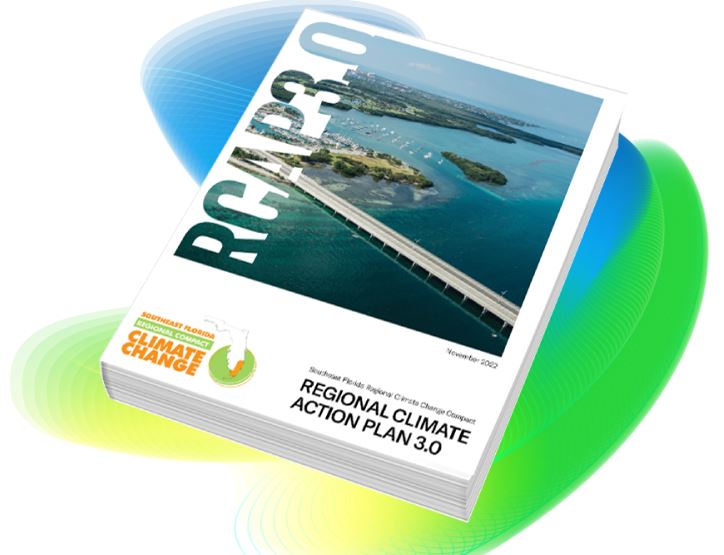 The RCAP 3.0 was developed with the guidance of more than 150 subject matter experts as well as with the input of community members and stakeholders. It outlines goals, recommendations and supporting strategies across 11 focal areas to advance the objectives of achieving net-zero greenhouse gas emissions by 2050 compared to a 2005 baseline, and of strengthening the adaptive capacity and climate resilience of the region's communities, institutions and economy.
The RCAP 3.0 was developed with the guidance of more than 150 subject matter experts as well as with the input of community members and stakeholders. It outlines goals, recommendations and supporting strategies across 11 focal areas to advance the objectives of achieving net-zero greenhouse gas emissions by 2050 compared to a 2005 baseline, and of strengthening the adaptive capacity and climate resilience of the region's communities, institutions and economy.
First developed in 2012, the RCAP is a voluntary framework designed to align, guide and support the acceleration of local and regional climate action in Southeast Florida to realize a healthy, prosperous, more equitable and resilient, low-carbon region.

“Fjords punch far above their weight in their ability to pull out a lot of carbon from the atmosphere and store it in the mud,” said Brad Rosenheim, geological oceanography professor and paleoclimate expert at the USF College of Marine Science, who explained that scientists only learned of this small-but-mighty role recently. In 2015, an ocean geochemist and professor at the University of Florida, Thomas Bianchi, pioneered a Nature Geosciences study, with his graduate student at the time, Richard Smith (now at Global Aquatic Research LLC), that first opened scientists’ eyes to the powerful role that fjords play in global carbon storage, he said.
Full article available on USF's College of Marine Science website
The U.S. Global Change Research Program is expected to release the first-ever U.S. National Nature Assessment in 2026.
The National Nature Assessment will draw on expertise from the Federal Government, Indigenous communities, academia, non-profit organizations, and the private sector. The Assessment team will hold an array of public engagement opportunities to ensure the report answers questions that are important to every American’s life, and is informed by the best available evidence. Public comments are open through March 31, 2023.

Join the first interdisciplinary graduate program in the nation, Master of Science in Climate and Health (U-MSCH), at UM. This program trains future generations of clinicians, professionals, researchers, meteorologists, planners, decision-makers and leaders to address the 21st century challenges of the health effects of climate, climate change, weather patterns and weather anomalies (C2W2). The program will provide critical interdisciplinary training needed to:
- understand and investigate an intricate relationship between health and climate, and
- tease out present and future disease and disability burden of C2W2 and its management
Now, we are accepting applications for our Master of Science in Climate and Health Program for the fall of 2023 at the University of Miami.
Mission: Provide students with the state-of-the-art interdisciplinary training in understanding, characterizing and managing the health effects of climate, climate change, weather and weather anomalies (C2W2).
Duration: Two-year Master’s Degree
Tracks:
- Toxicology (pre-med)
- Public Health Sciences
- Marine and Atmospheric Sciences
- Climate and Health - Analytical
Opportunities to pursue research with interdisciplinary faculty members from five colleges
Limited research assistantships may be available
Program details and application information available on the UM Climate & Health website
 Grants up to $4,000 available to Oak Ridge Associated Universities (ORAU) Consortium member universities
Grants up to $4,000 available to Oak Ridge Associated Universities (ORAU) Consortium member universities
ORAU’s FY 2023 Innovation Partnerships Program (formerly Events Sponsorship Grant Program) is being restructured to build stronger relationships between university members and ORAU subject matter experts. These updates are designed to focus on research and education topics that align well with ORAU’s expertise and current priorities.
Applications must be focused on one or more of the FY 2023 ORAU core focus areas.
An ORAU subject matter expert will serve as a collaborator with the university PI.
The goal of this grant program change is to drive new opportunities for university consortium members and ORAU experts to formulate meaningful collaborations.
Innovation Partnerships grant applications are currently being accepted and the application window will remain open throughout the fiscal year depending on available funds.
Each member university is limited to one award per fiscal year. Up to $4,000 may be requested to support an in-person or virtual event that involves participants from more than one ORAU member institution, including students. Innovation Partnership applications should focus on focused workshops/conferences that highlight your university’s strategic STEM research and education growth areas, and where collaborations with other member universities would add value. We are specifically interested in events that can bring more thought leadership in building a national strategy for STEM education and workforce development. Member universities are encouraged to collaborate around this topic in anticipation of federal funding initiatives.
According to NOAA scientists, the global surface temperature for 2022 was the sixth highest since record keeping began in 1880. In a separate analysis of global temperature data also released today, NASA ranks 2022 as the fifth-warmest year on record, tying with 2015. Analysis from the Copernicus program ranked 2022 as the fifth-warmest year on record. December’s global surface temperature was the eighth highest in the 143-year record, according to NOAA.
2022 was the 5th warmest year on record for Florida.
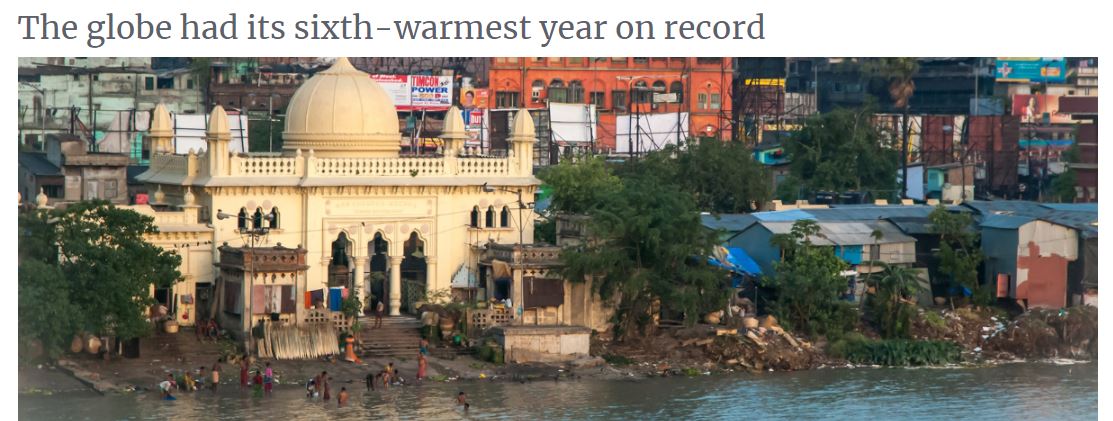 This summary from NOAA National Centers for Environmental Information is part of the suite of climate services that NOAA provides to government, business, academia, and the public to support informed decision-making.
This summary from NOAA National Centers for Environmental Information is part of the suite of climate services that NOAA provides to government, business, academia, and the public to support informed decision-making.
Details and information on global climate and temperature, rainfall, snow, and sea ice are available on NOAA's Assessing the Global Climate in 2022 webpage.
Join NNOCCI’s Governing Council!
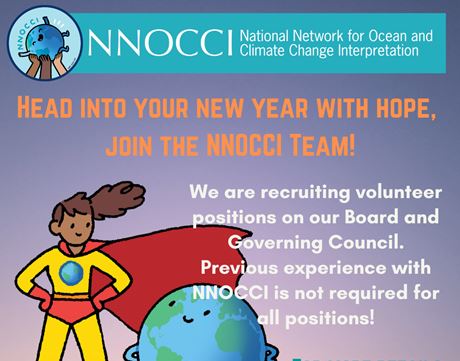 We are pleased to announce that applications are now open to join NNOCCI’s Governing Council, a group of committees actively engaged in sustaining, deepening and expanding NNOCCI’s work. We are currently recruiting for a variety of volunteer positions to join our committees, as well as a position within our Board of Directors:
We are pleased to announce that applications are now open to join NNOCCI’s Governing Council, a group of committees actively engaged in sustaining, deepening and expanding NNOCCI’s work. We are currently recruiting for a variety of volunteer positions to join our committees, as well as a position within our Board of Directors:
- Vice President
- Communications
- Impact and Evaluation
- JEDI (Justice, Equity, Diversity & Inclusion)
- Membership Engagement
- Science
- Training
Positions are open to all.
For full position descriptions, visit NNOCCI Governing Council Position Description
To apply, visit NNOCCI Governing Council Application
Applications are due by February 15th, 2023 @ 3 PM ET / 12 PM PT
Please contact This email address is being protected from spambots. You need JavaScript enabled to view it. with any questions.
by Renee Cho
January 12, 2023
The favored refrain of climate deniers and those who oppose climate policies is that “the science is not settled.” To some degree, this is true. Climate scientists are still uncertain about a number of phenomena. But it is the nature of science to never be settled — science is always a work in progress, constantly refining its ideas as new information arrives.
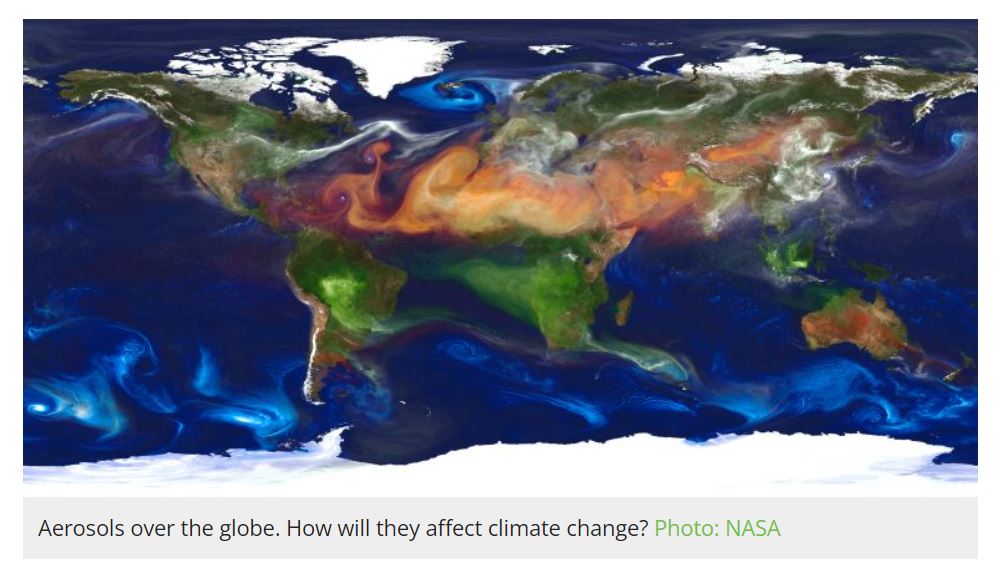 Certain evidence, however, is clear: global temperatures are rising, and humans are playing a role in it. And just because scientists are uncertain about some other areas, does not negate what they are sure about.
Certain evidence, however, is clear: global temperatures are rising, and humans are playing a role in it. And just because scientists are uncertain about some other areas, does not negate what they are sure about.
What’s certain and what’s not
Reputable climate scientists around the world are in almost unanimous agreement that human influences have warmed the atmosphere, ocean, and land and that the speed of the changing climate exceeds what can be attributed to natural variability. They are also virtually certain that this warming has been driven by the carbon dioxide and other greenhouse gases produced by human activities, mainly the burning of fossil fuels. Climate scientists are highly confident about these things because of fundamental principles of physics, chemistry, and biology; millions of observations over the last 150 years; studies of ice cores, fossil corals, ocean sediments, and tree rings that reveal the natural influences on climate; and climate models.
Despite this evidence, “In the climate change field, with its countless socioecological factors and interdependent systems, its known unknowns and unknown unknowns, deep uncertainty abounds,” said the World Resources Institute. The uncertainties are due to an incomplete understanding of Earth’s systems and their interactions; natural variability in the climate system; the limitations of climate models; bias; and measurement errors from imprecise observational instruments. In addition, there is great uncertainty about how the climate will be affected by humans and the demographic, economic, technical, and political developments of the future.
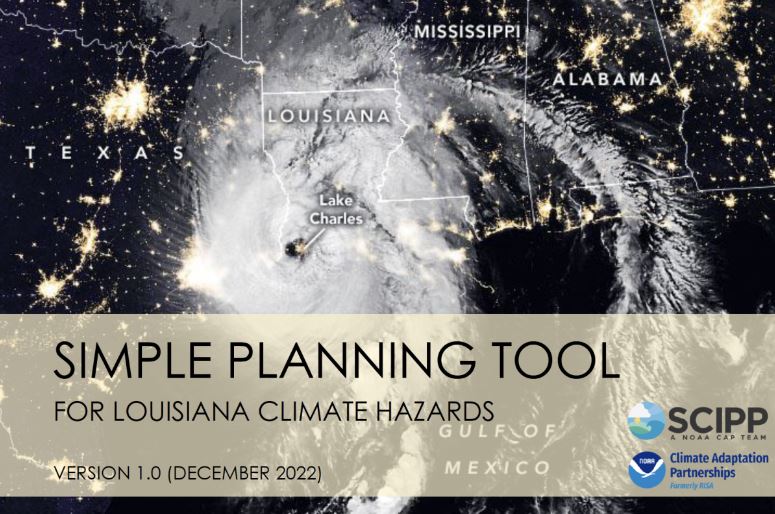 The Southern Climate Impacts Planning Program (SCIPP) is happy to announce the expansion of the Simple Planning Tool to Louisiana. The tool is now available for all states in the SCIPP region: Oklahoma, Arkansas, Texas, and Louisiana. The Simple Planning Tool assists planners, emergency managers, and decision makers in Louisiana who are assessing their long-term climate risks, both historically and in the future. The tool was primarily designed for decision makers who serve small- to medium-sized communities but may also be of interest to those who serve larger areas. The tool is now available here, or on our Tools page.
The Southern Climate Impacts Planning Program (SCIPP) is happy to announce the expansion of the Simple Planning Tool to Louisiana. The tool is now available for all states in the SCIPP region: Oklahoma, Arkansas, Texas, and Louisiana. The Simple Planning Tool assists planners, emergency managers, and decision makers in Louisiana who are assessing their long-term climate risks, both historically and in the future. The tool was primarily designed for decision makers who serve small- to medium-sized communities but may also be of interest to those who serve larger areas. The tool is now available here, or on our Tools page.
The Simple Planning Tool for Louisiana Climate Hazards is a compilation of relatively easy-to-use online interactive tools, maps, and graphs relevant to 17 hazards: 14 climate hazards and 3 non-climate hazards. Users can access and obtain locally relevant data from the provided links and instructions. It also provides information on data limitations and a state-of-the-science summary on projected future trends for each hazard. Finally, appendices include hazard definitions and descriptions, historical FEMA/presidential disaster declarations, climate change science and projection resources, and incentive and action programs for hazard risk reduction. The vast number of weather and climate tools available can be overwhelming, so this tool aims to cut through the internet clutter and point to relatively simple data tools that can be used during planning processes and in plans.
SCIPP is one of several National Oceanic and Atmospheric Administration (NOAA) Climate Adaptation Partnerships (CAP) teams, formerly named Regional Integrated Sciences and Assessments, and assists organizations with decision making that builds resilience by collaboratively producing research, tools, and knowledge that reduce weather and climate risks and impacts across the south-central U.S. Learn more about SCIPP at www.southernclimate.org.
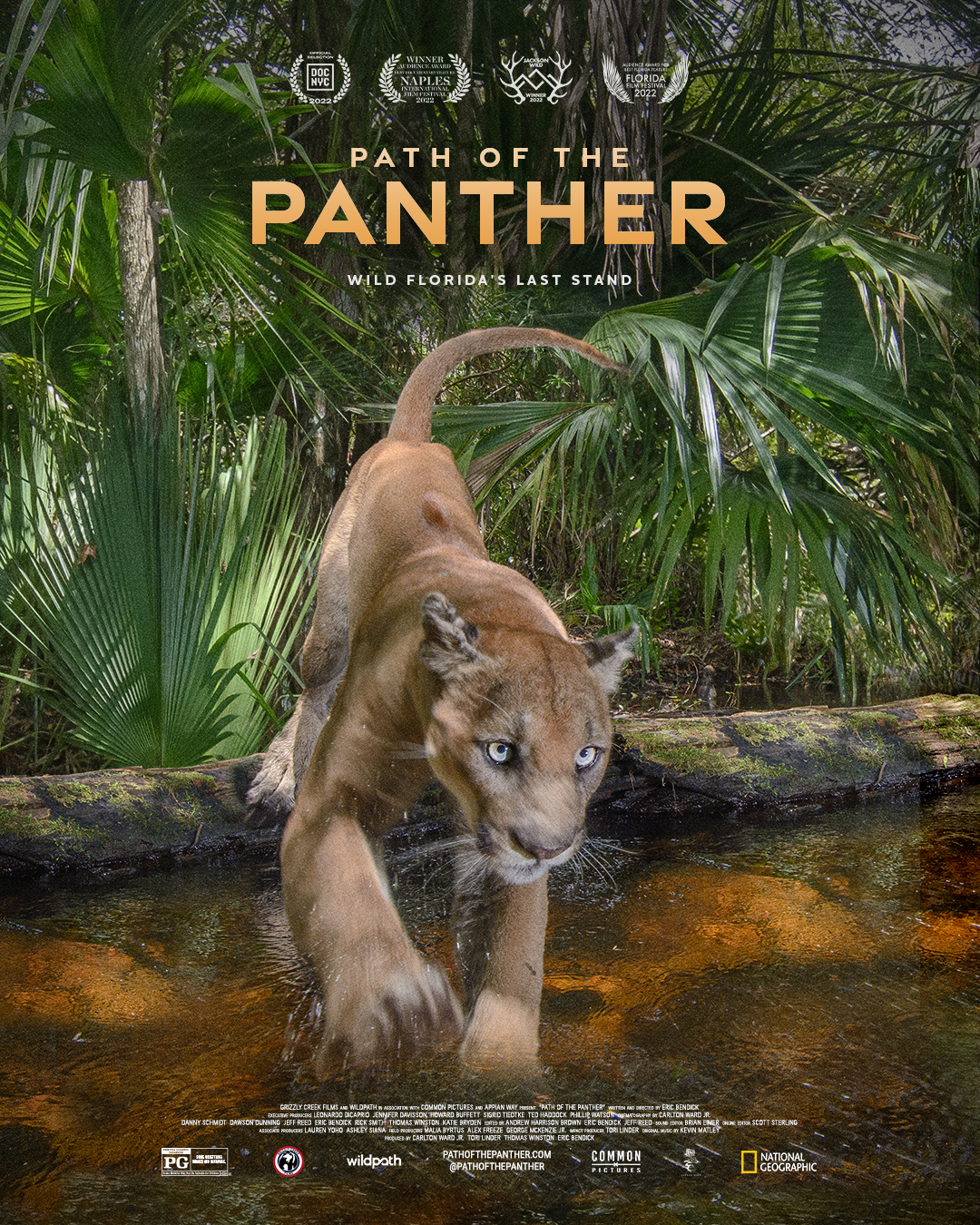
Check out Path of the Panther in a Florida theater!
Drawn in by the haunting specter of the Florida panther, a wildlife photographer, veterinarians, ranchers, conservationists, and indigenous people find themselves on the front lines of an accelerating battle between forces of renewal and destruction that have pushed the Everglades to the brink of ecological collapse.
In a struggle resonating across the globe, the panther’s habitat has become an island. Its lush territory transformed into subdivisions. A paradise vanishing into thin air.
Please support this stunningly beautiful film in your local theaters.
Playing throughout Florida now.
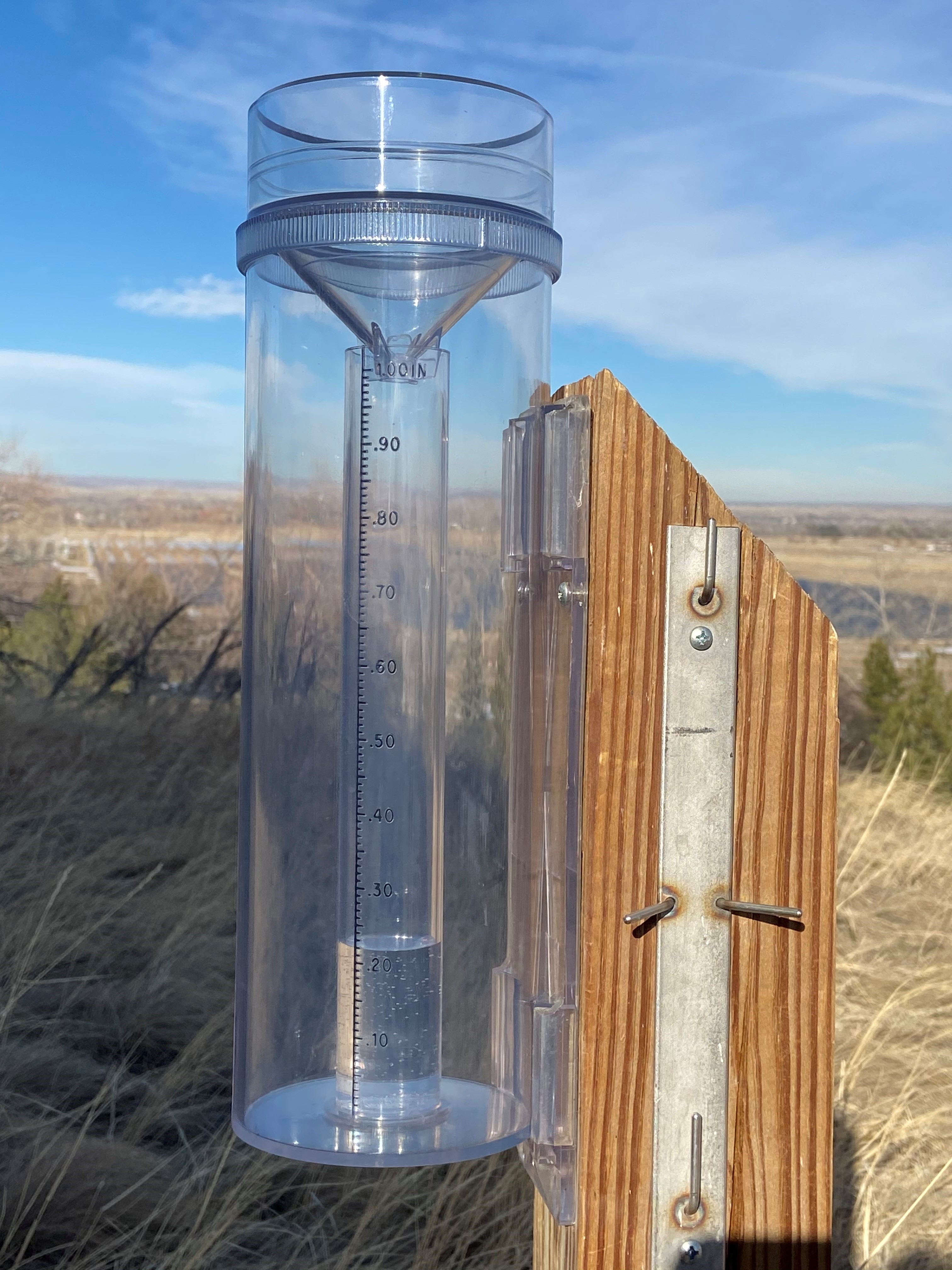 Ever notice how it rains at the airport and sometimes not at your house? Rainfall can be quite variable, especially here in Florida. Join thousands of other Citizen Scientist’s who observer and report rainfall in their backyards using a simple plastic rain gauge. CoCoRaHS, the Community Collaborative Rain, Hail and Snow network, celebrating its 25th anniversary this year, is looking for everyday folks to help measure rainfall at their locations. It’s easy and fun and only takes five minutes a day. Over 25,000 folks in six different countries are helping scientist’s, researchers and those at the National Weather Service fill in the gaps on the map with their measurements. The data is used daily and can make a real difference. To become a rainfall volunteer, visit www.cocorahs.org and sign up today. We can really use your help in Northern Florida!
Ever notice how it rains at the airport and sometimes not at your house? Rainfall can be quite variable, especially here in Florida. Join thousands of other Citizen Scientist’s who observer and report rainfall in their backyards using a simple plastic rain gauge. CoCoRaHS, the Community Collaborative Rain, Hail and Snow network, celebrating its 25th anniversary this year, is looking for everyday folks to help measure rainfall at their locations. It’s easy and fun and only takes five minutes a day. Over 25,000 folks in six different countries are helping scientist’s, researchers and those at the National Weather Service fill in the gaps on the map with their measurements. The data is used daily and can make a real difference. To become a rainfall volunteer, visit www.cocorahs.org and sign up today. We can really use your help in Northern Florida!
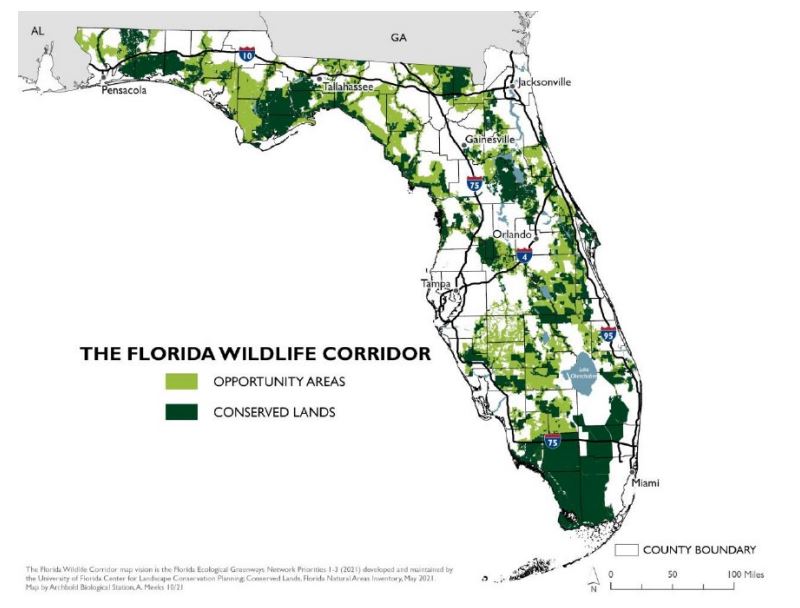 March 17, 2023 – Gainesville, Fla. – A fully-connected Florida Wildlife Corridor could roughly double the permanent protection of many water resources critical to the state’s ecology and economy, according to a first-of-its-kind study led by the University of Florida Water Institute.
March 17, 2023 – Gainesville, Fla. – A fully-connected Florida Wildlife Corridor could roughly double the permanent protection of many water resources critical to the state’s ecology and economy, according to a first-of-its-kind study led by the University of Florida Water Institute.
The report, commissioned by Archbold Biological Station and the Live Wildly Foundation, found that protecting the remaining 46% of the Corridor would help conserve critical aquatic and coastal ecosystems. This includes freshwater wetlands, rivers, springs and estuaries, which serve as habitat to at-risk species like storks, heron and manatees, as well as fulfill crucial ecosystem functions.
“While the Florida Wildlife Corridor was not designed specifically as a water-protection plan, our findings show that, if fully connected, the Corridor will provide many water benefits,” said Wendy Graham, director of the UF Water Institute. “We were particularly impressed by the level of protection land conservation offered wetlands and rivers. This shows the potential to develop a healthy surface water ecosystem throughout our state, and thus protect wildlife habitat, store carbon and preserve Florida’s nature.”
Read the full press release
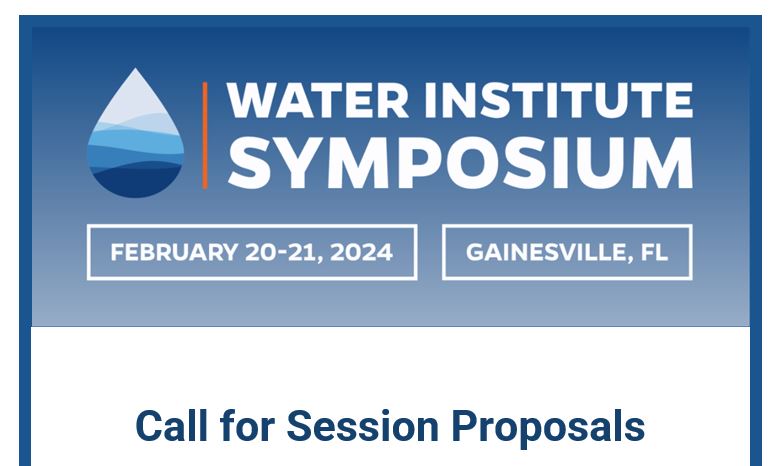 For the first time, the UF Water Institute is issuing an open call to the water science, technology, education, policy, management and stakeholder community to assist with developing our symposium agenda!
For the first time, the UF Water Institute is issuing an open call to the water science, technology, education, policy, management and stakeholder community to assist with developing our symposium agenda!
We invite you to propose a session related to your interests & expertise:
1. Water Quality Drivers & Impacts on Public, Wildlife & Ecosystem Health
2. Water Scarcity, Allocation & Reuse
3. Building Resilience to Climate Change & Sea Level Rise
4. AI/Machine Learning, Big Data & Convergent Science for Water Systems
5. Water Governance & Environmental Justice
6. Intersecting Science, Stakeholders & Decision-Making
7. Education, Technology & Decision Tools for Improved Water Management
8. Hydro-ecologic Connections Across the Land-Sea Continuum
*Sessions do not need to be limited to these areas.
The symposium seeks to capture all emerging issues and new ideas.
The deadline to submit a proposal is Monday, July 10, 2023.

There are multiple, feasible and effective options to reduce greenhouse gas emissions and adapt to human-caused climate change, and they are available now, said scientists in the latest Intergovernmental Panel on Climate Change (IPCC) report released March 20.
The IPCC's latest synthesis report is over 8000 pages long. World Resources Institute did a fantastic job capturing the 10 key takeaways of this dire warning to humanity.
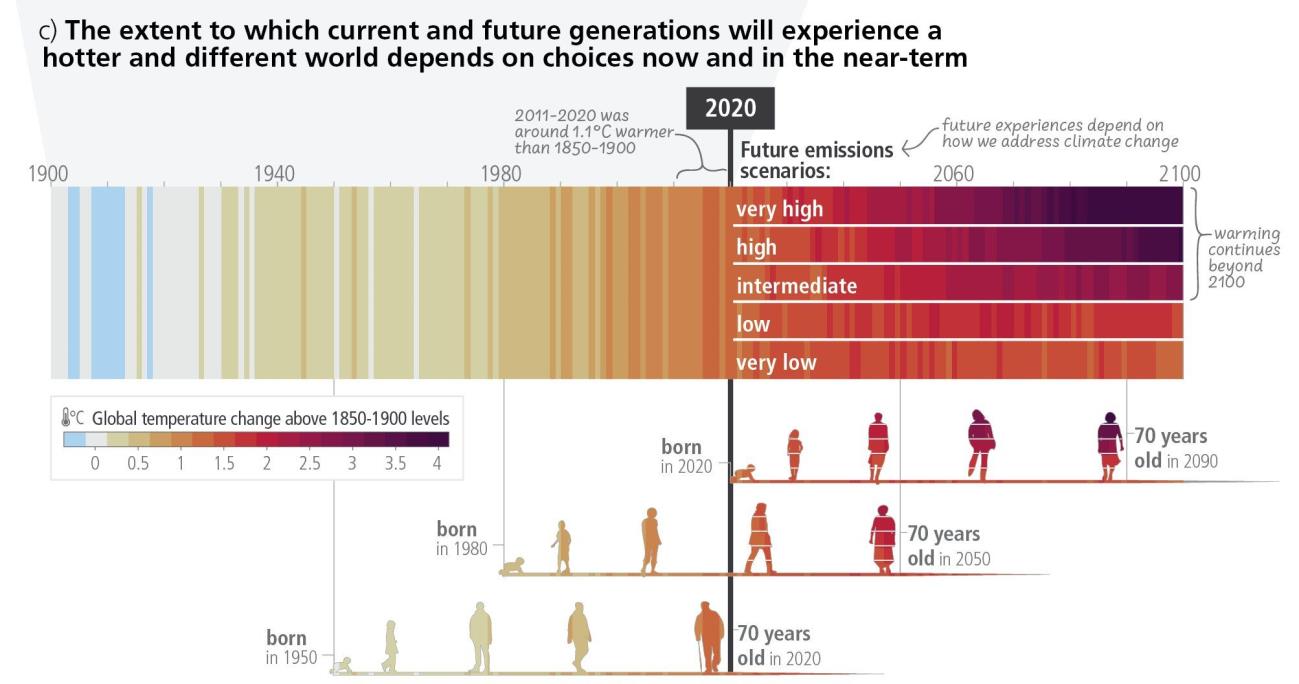 Main points:
Main points:
1. Human-induced global warming of 1.1 degrees C has spurred changes to the Earth’s climate that are unprecedented in recent human history.
2. Climate impacts on people and ecosystems are more widespread and severe than expected, and future risks will escalate rapidly with every fraction of a degree of warming.
3. Adaptation measures can effectively build resilience, but more finance is needed to scale solutions.
4. Some climate impacts are already so severe they cannot be adapted to, leading to losses and damages.
5. Global GHG emissions peak before 2025 in 1.5 degrees C-aligned pathways.
6. The world must rapidly shift away from burning fossil fuels — the number one cause of the climate crisis.
7. We also need urgent, systemwide transformations to secure a net-zero, climate-resilient future.
8. Carbon removal is now essential to limit global temperature rise to 1.5 degrees C.
9. Climate finance for both mitigation and adaptation must increase dramatically this decade.
10. Climate change — as well as our collective efforts to adapt to and mitigate it — will exacerbate inequity should we fail to ensure a just transition.
More information available at https://www.ipcc.ch/2023/03/20/press-release-ar6-synthesis-report/
Read the full AR6 Synthesis Report
The Coastal Flood Resilience Project recently provided Congress with a letter advocating increased funding for the National Science Foundation to expand research of glacier and ice sheet loss as needed to improve projections of sea level rise and support communities developing coastal flood resilience plans.
This interdisciplinary studio, led by the University of Florida, proposes a series of “suburban retrofits” to envision greater resilience, equity, and sustainability in Southwest Florida, which was recently devastated by Hurricane Ian. Multi-disciplinary teams focus on the city of Cape Coral, a poster child for Florida’s rampant post World War II suburban development, to explore design interventions systems at the scale of city and neighborhood.
Through a series of architectural designs, landscape infrastructures, planning/policy interventions, as well as multimedia tools to reimagine a transformed “civic core,” student teams visualize different possible futures for the study area. Design interventions culminate in the creation of an interactive “digital twin” using the Unreal Engine platform.
Funded by the National Academies of science (NAS) Gulf Research Program (GRP), the GulfSouth “super-studio” combines architecture, landscape architecture, urban and regional planning, as well as journalism and construction management students to explore the critical challenges facing the Gulf of Mexico’s coastline and communities. UF was one of five universities awarded funding for the creation of interdisciplinary architectural studio design courses that engage with the unique challenges and opportunities of the Gulf of Mexico region.
On Tuesday, April 25, professionals and academics from across the Gulf South joined students to discuss and evaluate the design studio proposals. The audience asked questions and provided ideas and considerations for future iterations of the students' designs, and students explained their thought and creation processes. Students also shared their experience and outputs working with the UnReal Engine platform to demonstrate how their projects would look and feel using the digital medium. Overall, the class accomplished its main goal: people came together across fields to imagine a more resilient, more innovative future for Cape Coral.
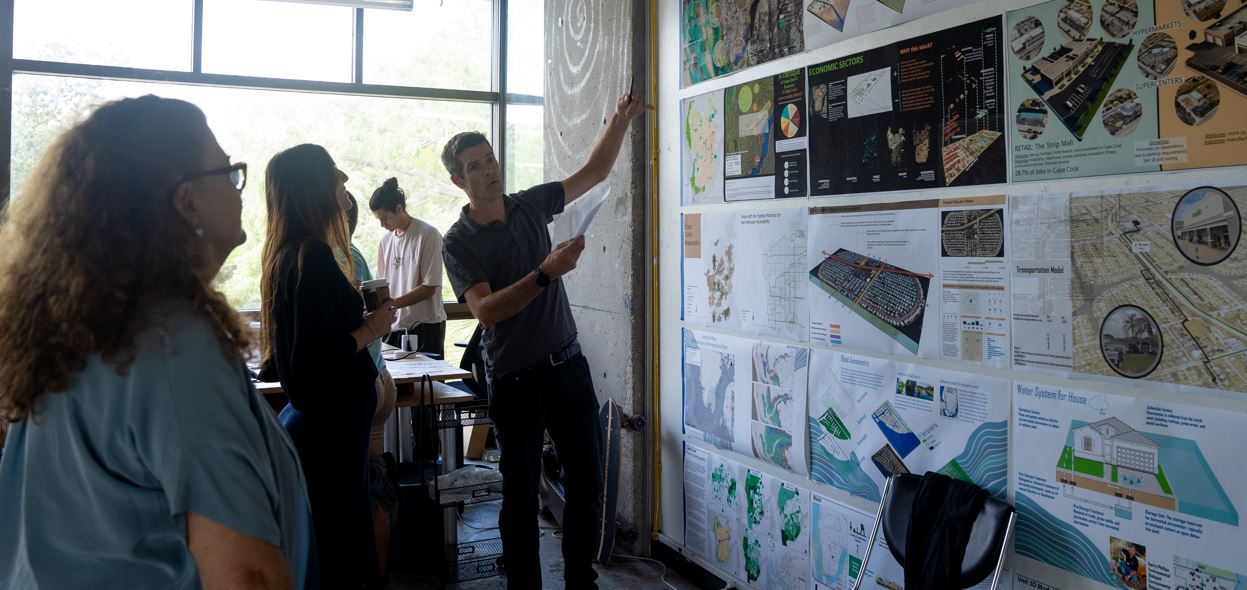
Please join us in congratulating our 6 new FCI Student Climate Fellows!
Each submitted outstanding original ideas for exploring climate-related research projects AND plans to communicate their findings. This program will not only help prepare our next generation of climate leaders, but it will also help inform communities in Florida about these urgent issues.
Check out these new fellows and stay tuned for more FCI opportunities!
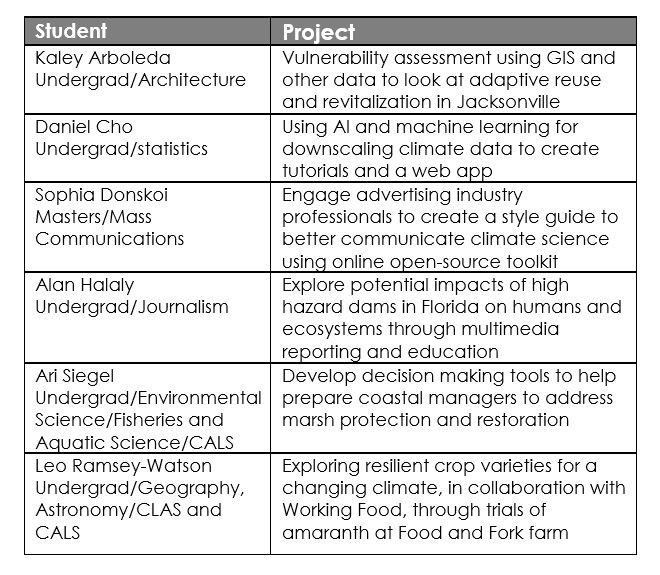
The Envision Resilience Challenge kicks off third year with UF architecture team again participating
 The 2023 Envision Resilience New Bedford and Fairhaven Challenge participating universities are the Rhode Island School of Design, Northeastern University, the University of Florida, the University of Massachusetts Amherst, the University of Massachusetts Dartmouth and the University of Virginia. The Envision Resilience Challenge, a semester-long design studio and community engagement initiative connects interdisciplinary teams from leading universities with coastal communities to imagine resilient pathways in the face of climate change through adaptive design. Since its inception three years ago, the program has worked with more than 200 students from nine universities to serve the six coastal communities of Nantucket, Wickford, Warren, Providence, Aquidneck Island and Barrington. Carolyn Cox of the FCI helps with the academic coordination of this initiative to give UF students the opportunity to work across universities, disciplines, and geographies.
The 2023 Envision Resilience New Bedford and Fairhaven Challenge participating universities are the Rhode Island School of Design, Northeastern University, the University of Florida, the University of Massachusetts Amherst, the University of Massachusetts Dartmouth and the University of Virginia. The Envision Resilience Challenge, a semester-long design studio and community engagement initiative connects interdisciplinary teams from leading universities with coastal communities to imagine resilient pathways in the face of climate change through adaptive design. Since its inception three years ago, the program has worked with more than 200 students from nine universities to serve the six coastal communities of Nantucket, Wickford, Warren, Providence, Aquidneck Island and Barrington. Carolyn Cox of the FCI helps with the academic coordination of this initiative to give UF students the opportunity to work across universities, disciplines, and geographies.
Once the whaling capital of the world and now home to the highest-earning fishing port in the country, New Bedford and Fairhaven have long been defined by their connection to the water. Like coastal communities around the world, these seaport towns are facing rising sea levels, increasingly hotter temperatures and more frequent and intensifying storms. Envision Resilience students this year will once again be tasked with identifying threats, researching possible solutions and proposing innovative ways of living under future conditions that address issues of environment, housing, transportation, equity, local industry, ecology and resilience. A cohort of community advisors will serve as liaisons between the student teams and the communities so that outcomes reflect the values, cultures and needs of the people.
“The 2022 Envision Resilience Narragansett Bay Challenge opened up my thinking to what's possible,” said climate consultant Curt Spalding, U.S. Environmental Protection Agency Administrator under the Obama Administration and the former executive director of Save the Bay. “It raised the bar for developing a longer-term effort for planning across Rhode Island communities. There is no doubt of the impact this program will have on the New Bedford and Fairhaven communities.”
Each year, final designs of the Envision Resilience Challenge are presented to the community through a number of local events and a multi-month exhibition. To date, these designs have reimagined coastal edges and urban systems through nature-based solutions in vulnerable areas and regenerative systems in a post-carbon economy and explored new ways of living that embrace healthy, sustainable and equitable systems. From floating wharves and raised streetscapes to living, integrated shorelines and net-zero buildings that use hemp lime construction, the student work has inspired conversations on how local residents can work together to consider adaptive waterfronts and neighborhoods that benefit people, ecosystems, recreation and resilience.
Click here to see designs from previous challenges in Nantucket and Narragansett Bay.
New research, published in Nature Climate Change, shows more detailed role of salt marshes, fjords
Coastal ecosystems globally lock away more carbon dioxide than they release, but emissions of two other greenhouse gases – methane and nitrous oxide – counteract that to a degree, according to international researchers led by Australia’s Southern Cross University that include a University of Florida biogeochemist.
The new findings of the coastal greenhouse gas balance in 10 regions globally are outlined in the paper published in Nature Climate Change.
From tropical lagoons to polar fjords, from coastal mangrove forests to underwater seagrass communities, many coastlines around the world show high diversity in greenhouse gas sinks and emissions.
Read the full article featured in UF Liberal Arts and Sciences NEWS


Will Charouhis was inspired to create a youth-led group to combat climate change by flooding in Miami from Hurricane Irma in 2017. At just 13 years old, Charouhis founded the nonprofit We Are Forces of Nature. Now 17, his continuing work on climate issues includes a project aimed at helping 1 million mangroves thrive.
Will Charouhis leads the project “A Million Mangroves: Halting Climate Change One Root at a Time”. Invading Sea readers might know Charouhis from the opinion pieces that he’s written for this website, including a piece on a speech by Jane Goodall in Miami. He serves on the Jane Goodall Institute’s USA Roots & Shoots National Youth Leadership Council.
He leads the project “A Million Mangroves: Halting Climate Change One Root at a Time” for the organization. The project is intended to regenerate mangrove forests that absorb greenhouse gas emissions, protect against coastal erosion and provide habitat for marine life.
At the beginning of the pandemic lockdown in 2020, Charouhis purchased a used kayak and started cleaning up mangroves near his home. When restrictions loosened, he began conducting monthly cleanups with his friends, cleaning up six miles of mangroves stretching down to the Florida Keys.
He also started planting mangroves, experimenting with ways to help ensure the plants survive. Young people around Miami have joined Forces of Nature in the planting effort, including a large planting on Virginia Key.
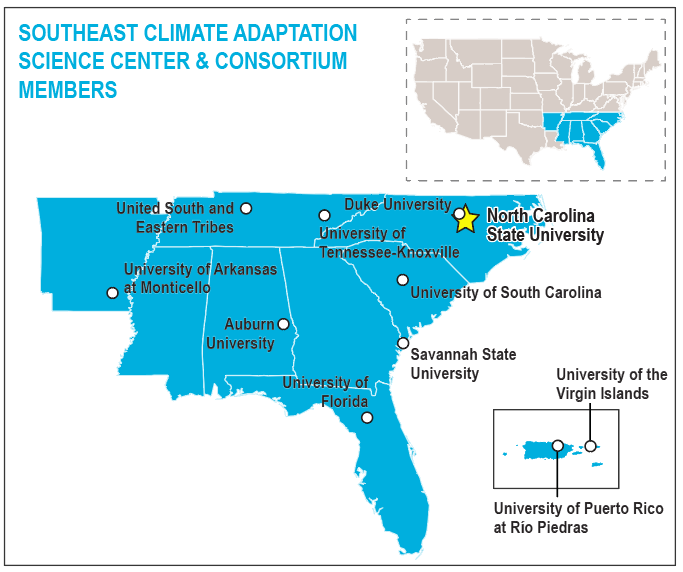 North Carolina State University has been awarded a new cooperative agreement from the U.S. Geological Survey to continue to host the Southeast Climate Adaptation Science Center (SE CASC) for the next five years. The award caps over 12 years of success as the host organization for the Southeast Climate Adaptation Science Center.
North Carolina State University has been awarded a new cooperative agreement from the U.S. Geological Survey to continue to host the Southeast Climate Adaptation Science Center (SE CASC) for the next five years. The award caps over 12 years of success as the host organization for the Southeast Climate Adaptation Science Center.
Read the full news release here.
 By Mary Anna Mancuso (RepublicEn.org)
By Mary Anna Mancuso (RepublicEn.org)
The warming planet and marine waters are bringing the topic of climate change and solutions to the forefront of conversations.
Read Mancuso's full article here.
 By Megan Mascheri (FAU Center for Environmental Studies)
By Megan Mascheri (FAU Center for Environmental Studies)
A Q&A with Jeff Berardelli, chief meteorologist and climate specialist at WFLA News Channel 8 in Tampa.
Read the full discussion here.
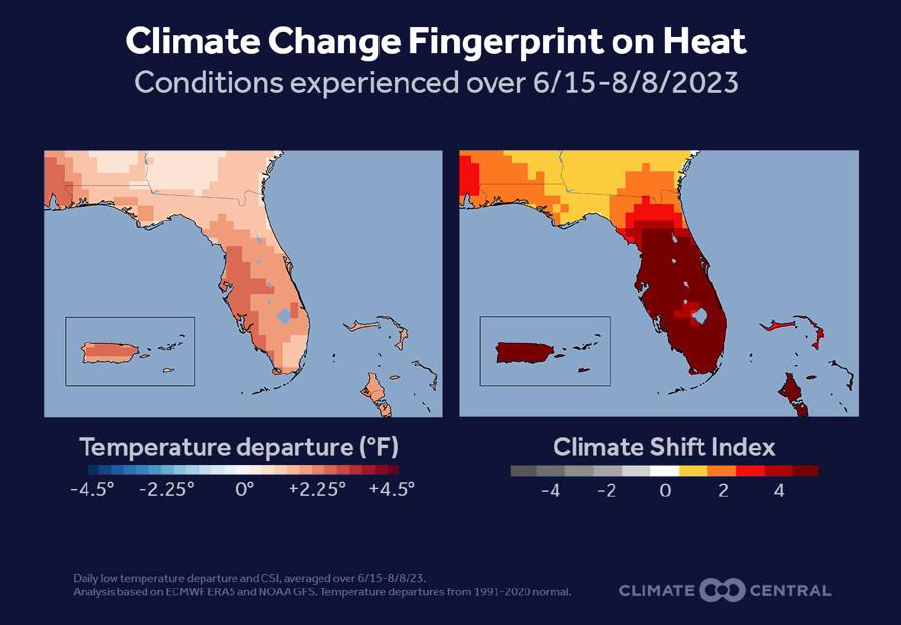 Record-setting warm overnight temperatures in Florida and Puerto Rico were made at least five times more likely by climate change, according to a new attribution analysis by Climate Central.
Record-setting warm overnight temperatures in Florida and Puerto Rico were made at least five times more likely by climate change, according to a new attribution analysis by Climate Central.
The climate-fueled heat exposed millions of people to potential heat-related health impacts as well as the economic burden of increased energy costs.
Read the full analysis here.

Florida researchers have received $1.5 million from the Gulf Research Program of the National Academies of Sciences, Engineering, and Medicine to map climate change health burdens.
Florida State University is partnering with Colorado University Boulder and Tulane University to identify climate change and health disparities along the Gulf Coast.
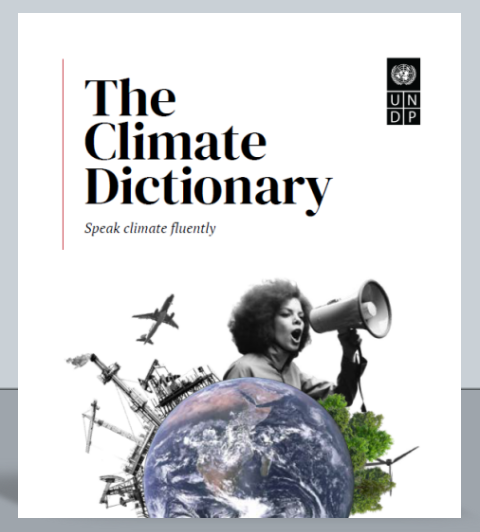 The United Nations Development Programme (UNDP) just published an excellent piece of work, “The Climate Dictionary: Speak Climate Fluently", defining 40 frequently used climate terms in a simple way, addressing the need for accurate, easy-to-understand information about climate change.
The United Nations Development Programme (UNDP) just published an excellent piece of work, “The Climate Dictionary: Speak Climate Fluently", defining 40 frequently used climate terms in a simple way, addressing the need for accurate, easy-to-understand information about climate change.
The dictionary defines important basic terminologies such as the distinction between weather and climate:
𝑾𝒆𝒂𝒕𝒉𝒆𝒓 “…refers to atmospheric conditions at a particular time in a particular location, including temperature, humidity, precipitation, cloudiness, wind, and visibility. Weather conditions do not happen in isolation, they have a ripple effect. The weather in one region will eventually affect the weather hundreds or thousands of kilometers away.”
𝑪𝒍𝒊𝒎𝒂𝒕𝒆 “…is the average of weather patterns in a specific area over a longer period of time, usually 30 or more years, that represents the overall state of the climate system.”
The dictionary goes beyond strictly climate change-related items, and also covers such terminologies like "blue economy" and "greenwashing".
The full scope of Hurricane Idalia’s destruction is still coming into focus, but experts say one thing is clear: It could have been more like the damage wrought by Hurricane Ian had it hit anywhere else on the Florida coast. Professors Jeff Carney and Kathryn Frank spoke with CNN.

Are you a university-based, tenure-track researcher interested in and/or currently doing science communication? We invite you to participate in an exciting research study aimed at understanding how scientists construct identity and engage in public outreach. Your valuable insights will ultimately contribute to the development and support of scientist communicators nationwide.
Questions?
Contact Brenda Guerrero (This email address is being protected from spambots. You need JavaScript enabled to view it.) or Remy Dou (This email address is being protected from spambots. You need JavaScript enabled to view it.)
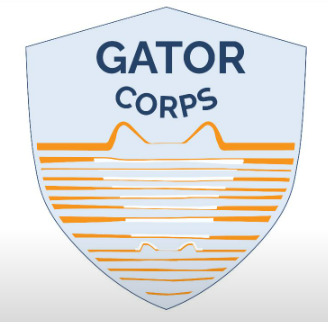 The University of Florida’s new AmeriCorps program, GatorCorps, is recruiting the first cohort of national service members!
The University of Florida’s new AmeriCorps program, GatorCorps, is recruiting the first cohort of national service members!
The program will open up opportunities (20+ funded positions per year f/t or p/t) for UF students and graduates to gain experience with Florida Institute for Built Environment Resilience partners in the field. GatorCorps members will extend and apply the resilience and risk reduction knowledge that has matured in UF in practical and service-oriented ways, furthering our research and education missions in front-line communities. We will be hiring student members to serve in Gainesville for 10-20 hours per week, with f/t graduate opportunities in Gainesville, Cedar Key, and Jacksonville.
Applications will be reviewed on a rolling basis until the program is full.
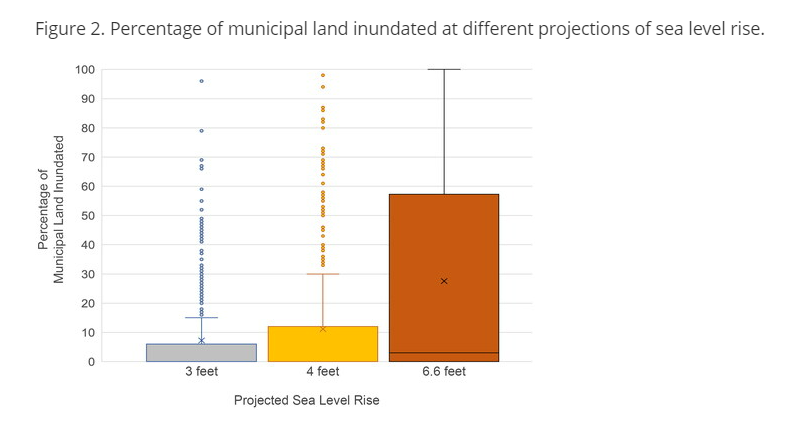 A new paper "Can Florida’s Coast Survive Its Reliance on Development?Fiscal Vulnerability and Funding Woes Under Sea Level Rise" is now out in JAPA, open access. How much will sea level rise will affect local government revenues in Florida? A LOT: 211 municipalities, $619 billion in assessed property values that currently contribute $2.36 billion. Some 64 municipalities have 50%+ of revenues sitting within 6.5 feet of current sea levels. We pair our spatial analysis with a statewide survey of coastal planners and show that there is no relationship between the level of fiscal risk & prioritization of adaptation planning.
A new paper "Can Florida’s Coast Survive Its Reliance on Development?Fiscal Vulnerability and Funding Woes Under Sea Level Rise" is now out in JAPA, open access. How much will sea level rise will affect local government revenues in Florida? A LOT: 211 municipalities, $619 billion in assessed property values that currently contribute $2.36 billion. Some 64 municipalities have 50%+ of revenues sitting within 6.5 feet of current sea levels. We pair our spatial analysis with a statewide survey of coastal planners and show that there is no relationship between the level of fiscal risk & prioritization of adaptation planning.
Big picture takeaways:
- fiscal risk from climate change is real but ignored
- fiscal policy - including reliance on property tax - constrains creative solutions
- market responses will likely result in resilient upland enclaves and vulnerable, poorer coastal towns.
What to do?
- recognize fiscal risk and assess it like we do with physical infrastructure and social vulnerability. We need a national fiscal climate risk dataset!
- enable regional land and revenue sharing. NH's SB285 allowing coastal towns to merge due to SLR is a start
- promote cooperative strategies like community land trusts and limited equity cooperative housing to help lower-income groups avoid displacement and adapt
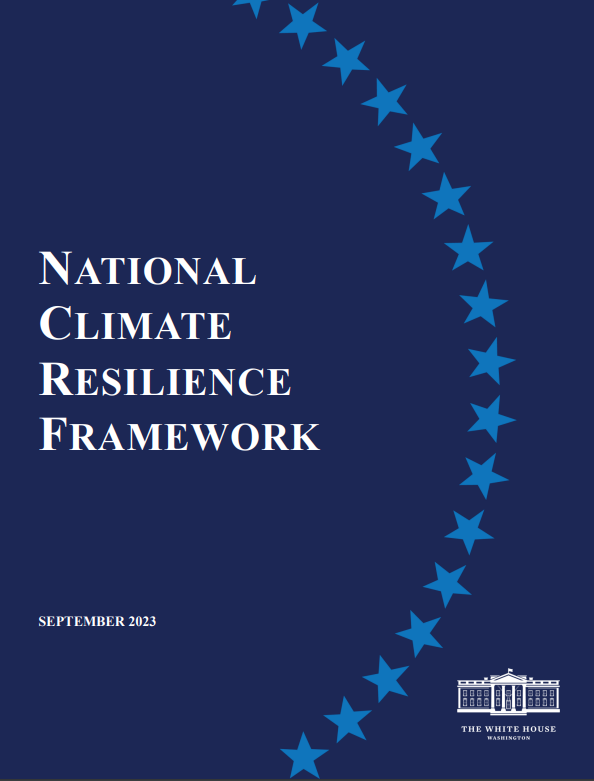 The White House’s new National Climate Resilience Framework outlines more than a dozen essential measures that help prepare the nation to adjust to the accelerating impacts of climate change.
The White House’s new National Climate Resilience Framework outlines more than a dozen essential measures that help prepare the nation to adjust to the accelerating impacts of climate change.
The impacts of a warming world are already being felt, and this year the United States has experienced a record number of billion-dollar climate and weather disasters, according to the National Oceanic and Atmospheric Administration.
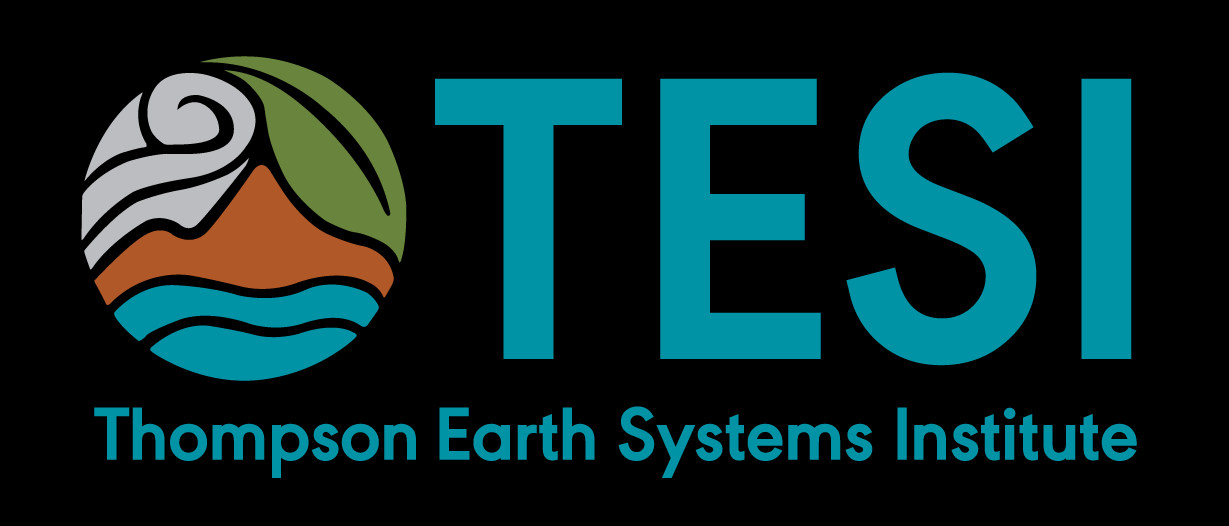 The University of Florida's Scientist in Every Florida School program within the Thompson Earth Systems Institute (TESI) is looking for scientists to join our database for virtual and in-person K-12 classroom visits to talk about their fields. We are interested in all field areas, but have a great need for the following at this time:
The University of Florida's Scientist in Every Florida School program within the Thompson Earth Systems Institute (TESI) is looking for scientists to join our database for virtual and in-person K-12 classroom visits to talk about their fields. We are interested in all field areas, but have a great need for the following at this time:
Astronomy- all space related fields
Physics- forces, motion, energy related fields
Chemistry- physical and chemical properties and changes in matter
Meteorology- climate, weather related fields
Climate Change related fields
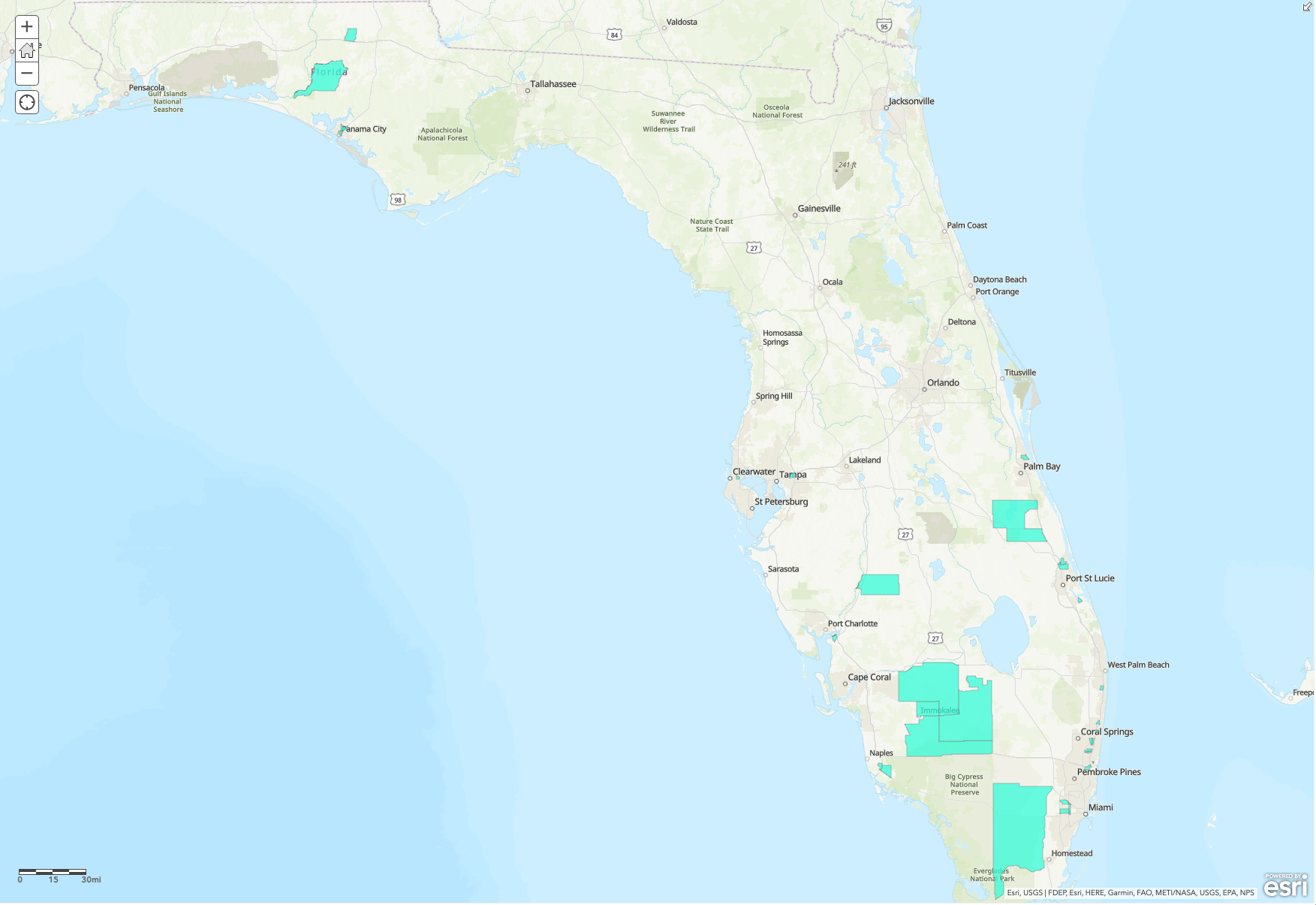 In September, FEMA announced an initial 483 census tracts nationwide that will be eligible for increased federal support to become more resilient to natural hazards and extreme weather worsened by the climate crisis – known as Community Disaster Resilience Zones (CDRZ). FEMA will use the CDRZ designations to direct and manage financial and technical assistance for resilience projects in these areas. The CDRZ designations identify communities most at risk of the effects of natural hazards and climate change using a tailored version of the National Risk Index that takes into consideration socioeconomic vulnerability as well as physical exposure and risk. An initial 32 CDRZ designations have been identified in Florida.
In September, FEMA announced an initial 483 census tracts nationwide that will be eligible for increased federal support to become more resilient to natural hazards and extreme weather worsened by the climate crisis – known as Community Disaster Resilience Zones (CDRZ). FEMA will use the CDRZ designations to direct and manage financial and technical assistance for resilience projects in these areas. The CDRZ designations identify communities most at risk of the effects of natural hazards and climate change using a tailored version of the National Risk Index that takes into consideration socioeconomic vulnerability as well as physical exposure and risk. An initial 32 CDRZ designations have been identified in Florida.
Read FEMA’s press release here. View an interactive map of all CDRZ designations here.

A new video shares the most up-to-date sea level rise projections for the United States, and encourages viewers to take some initial steps. The video highlights key takeaways from the 2022 Sea Level Rise Technical Report, with a focus on the impacts on coastal communities. Viewers are encouraged to consider actions they can take within their communities, and directed to existing web tools for assessing the timing and severity of local impacts from sea level rise.
WLRN 91.3 FM | By John Pacenti | Key Biscayne Independent
Published October 27, 2023 at 3:57 PM EDT
Scientists are looking at the latest advance in computer science — artificial intelligence to better predict mammoth hurricanes, raging wildfires and increased coastal flooding.
Professor Ben Kirtman at the University of Miami’s Rosenstiel school is leading the AI effort with three new federal grants totaling more than $3 million.
The grants are from the National Science Foundation and the National Oceanic and Atmospheric Administration (NOAA) and will be used to improve predictive analytics on three fronts.
A $750,000 grant will focus on coastal flooding in East Coast municipalities like Key Biscayne, aiming to give local communities long-term flood predictions that go beyond just anticipating hurricane storm surge
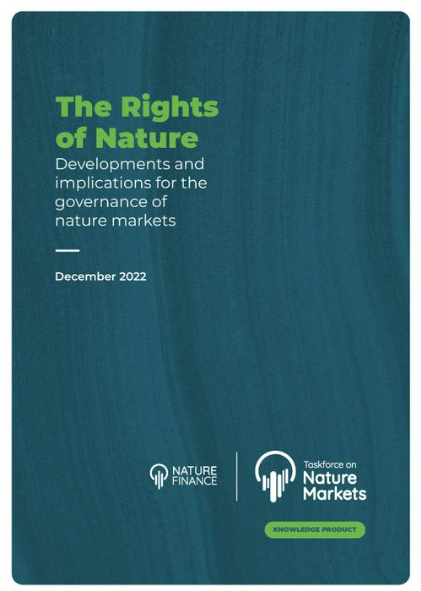
The Taskforce on Nature Markets, the initiative of NatureFinance (previously: Finance for Biodiversity Initiative – F4B), recently published this report with the objective of shaping a new generation of purposeful nature markets. Building on the Taskforce’s "The Future of Nature Markets" white paper, this document:
- responds to a rise in “nature markets” that explicitly monetize & trade nature,
- explores the developments in #environmental law & their implications, and
- aims to support the Taskforce in delivering its mandate: ensuring the global economy interfaces with nature in ways that deliver nature positive, equitable & #netzero outcomes.
Given the importance that legal frameworks, precedents, and measures play in the governance of nature markets, this paper covers three serious emerging environmental rights which sit at the intersection of nature, law, and human rights. This paper examines developments in environmental rights, with an overview of the right to a healthy environment and ecocide, and then delves deeper into the emergent rights of nature. This paper analyses the implications for nature markets and how they could be shaped by these rights.

The U.S. Department of Commerce’s Economic Development Administration (EDA) announced that the South Florida Climate Resilience Tech Hub, led by Miami-Dade County, has been designated as one of 31 Tech Hubs in the country, selected from a competitive pool of nearly 200 applicants across the United States and its territories. This designation will elevate and accelerate South Florida’s advances in climate action and resiliency, and unlocks access to tens of millions of dollars in potential funding. The Tech Hubs Program is a federal economic development initiative designed to drive regional technology and innovation-led growth by strengthening capacity to manufacture, commercialize, and deploy key climate technologies.
Read the full press release
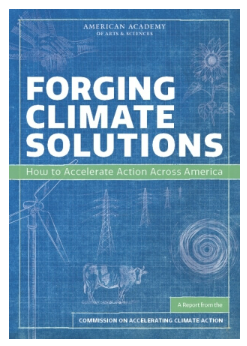 A new report from the Commission on Accelerating Climate Action at the American Academy of Arts & Sciences calls for a coordinated, cross-sector effort to combat climate change with five strategies and 21 recommendations rooted in justice, pragmatism, and accountability.
A new report from the Commission on Accelerating Climate Action at the American Academy of Arts & Sciences calls for a coordinated, cross-sector effort to combat climate change with five strategies and 21 recommendations rooted in justice, pragmatism, and accountability.
The report, Forging Climate Solutions: How to Accelerate Action Across America, was developed over a two-year period by a diverse commission of leaders sharing their expertise and priorities. The Commission’s report recommends how corporations, frontline communities, government, and environmental groups can work together to mobilize investments, build infrastructure, reduce emissions, and prepare for the impacts of climate change.
Led by Mustafa Santiago Ali (National Wildlife Federation), Christopher Field (Stanford), David G. Victor (University of California, San Diego, and the Brookings Institution), and Patricia Vincent-Collawn (PNM Resources), the commission’s expertise spans the arts, faith communities, environmental justice, youth activism, the natural and social sciences, Indigenous people and Indigenous Knowledge, public health, and urban design.
“Climate change is an existential challenge and addressing it will require us to build and sustain new kinds of coalitions,” said David Oxtoby, President of the American Academy. “The work is challenging but our Commission modeled how to connect across sectors and divides to take action. Our hope is that their work provides a roadmap for transcending ideological divisions to achieve tangible climate progress.”
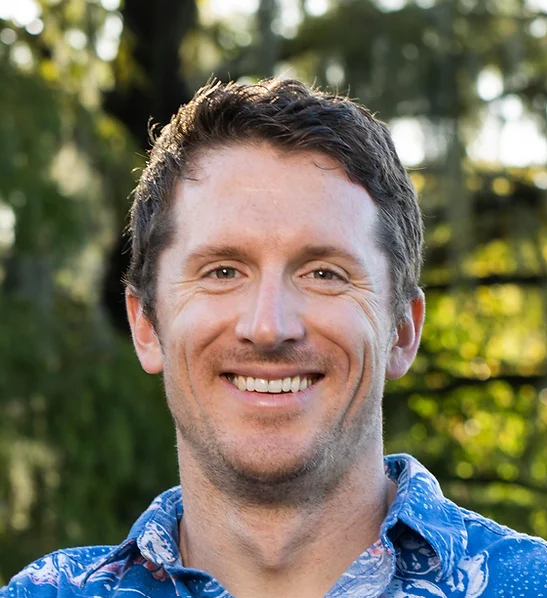 Congratulations to Dr. Brett Scheffers, Assistant Professor in the UF Department of Wildlife Ecology and Conservation, who has been named Florida Climate Institute Co-Director! Along with Dr. Sadie Ryan, Brett will co-lead the Florida Climate Institute at UF starting November 1. Many thanks to Dr. Rachata Muneepeerakul for his leadership over the past 3 years as the FCI has continued to grow and add programs.
Congratulations to Dr. Brett Scheffers, Assistant Professor in the UF Department of Wildlife Ecology and Conservation, who has been named Florida Climate Institute Co-Director! Along with Dr. Sadie Ryan, Brett will co-lead the Florida Climate Institute at UF starting November 1. Many thanks to Dr. Rachata Muneepeerakul for his leadership over the past 3 years as the FCI has continued to grow and add programs.
Read more about Dr. Scheffers here
 The Climate Innovation Challenge (CIC) cultivates student leaders who can think innovatively and communicate effectively about adapting to our changing climate. CIC is a free international STEAM program for grades 3-12 that guides students through the creation of climate change solutions while developing storytelling and video production skills. The program was developed by CAVU to challenge students to create unique ideas on adapting to increasing climate impacts like floods, fires, drought, rising temperatures, and sea-level rise. We encourage students to “think globally and adapt locally,” creating solutions to implement themselves in their communities. Learn more at ClimateInnovationChallenge.org!
The Climate Innovation Challenge (CIC) cultivates student leaders who can think innovatively and communicate effectively about adapting to our changing climate. CIC is a free international STEAM program for grades 3-12 that guides students through the creation of climate change solutions while developing storytelling and video production skills. The program was developed by CAVU to challenge students to create unique ideas on adapting to increasing climate impacts like floods, fires, drought, rising temperatures, and sea-level rise. We encourage students to “think globally and adapt locally,” creating solutions to implement themselves in their communities. Learn more at ClimateInnovationChallenge.org!

A team of scientists found that carbon dioxide becomes a more potent greenhouse gas as more is released into the atmosphere.
The new study, led by scientists at the University of Miami Rosenstiel School of Marine, Atmospheric, Science, was published in Science and comes as world leaders meet in Dubai, United Arab Emirates, this week for the United Nations Climate Change Conference COP28.

A new video shares the most up-to-date sea level rise projections for the United States, and encourages viewers to take some initial steps. The video highlights key takeaways from the 2022 Sea Level Rise Technical Report, with a focus on the impacts on coastal communities. Viewers are encouraged to consider actions they can take within their communities, and directed to existing web tools for assessing the timing and severity of local impacts from sea level rise.
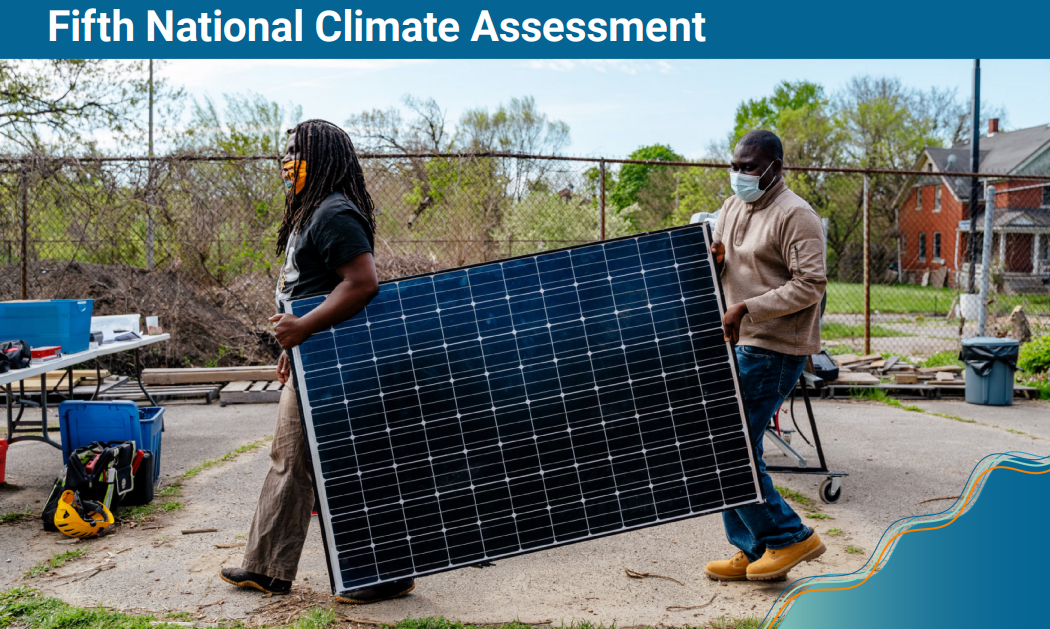
The effects of a rapidly warming climate are being felt in every corner of the US and will worsen over the next 10 years with continued fossil fuel use, according to a stark new report from federal agencies. The Assessment evaluates climate impacts across 10 U.S. regions and a wide range of interests, including water, forests and ecosystems, coasts and oceans, agriculture and rural communities, the built environment, energy and transportation, health and air quality, and economic and social systems.
You can find a report overview, figures, and the full report itself on the NCA 2023 website.
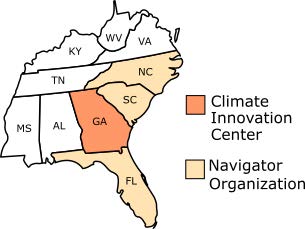 This project will serve the 72 communities in Florida, Georgia, North Carolina, and South Carolina that have recently received Community Disaster Resilience Zone (CDRZ) designations from the Federal Emergency Management Agency (FEMA). Dr. Emily Powell from FSU and Carolyn Cox from UF will co-lead the Florida region along with several partners from UF-IFAS Extension and Sea Grant within the CDRZ communities.
This project will serve the 72 communities in Florida, Georgia, North Carolina, and South Carolina that have recently received Community Disaster Resilience Zone (CDRZ) designations from the Federal Emergency Management Agency (FEMA). Dr. Emily Powell from FSU and Carolyn Cox from UF will co-lead the Florida region along with several partners from UF-IFAS Extension and Sea Grant within the CDRZ communities.
Our partner organizations Georgia Conservancy, the North Carolina Office of Recovery and Resiliency, the Shi Institute for Sustainable Communities at Furman University, and the Florida Climate Institute will establish Navigators to serve as trusted partners for CDRZ communities in their state. These Navigators will work directly with CDRZ communities to help them identify and take advantage of funding sources and capacity building opportunities, and secure technical support necessary to develop strategies that lead to tangible resilience benefits. Additionally, Project IN-CORE and Resilient Cities Catalyst will offer direct technical support to communities across the four states.
In addition to supporting CDRZ communities, this project serves as a Climate Ready America demonstration project and supports planning for the Georgia Climate Innovation Center. This project also serves a larger role within the climate resilience field by developing a measurement and evaluation framework, led by EcoAdapt, that can be used by organizations helping CDRZ communities nationwide.
We are continuing to work with federal agencies, philanthropies, and the corporate sector to build a national network of Navigators to support CDRZ communities in all states and territories. Our goal is to have this network of climate services for CDRZ communities serve as the foundation for the Climate Ready America initiative.
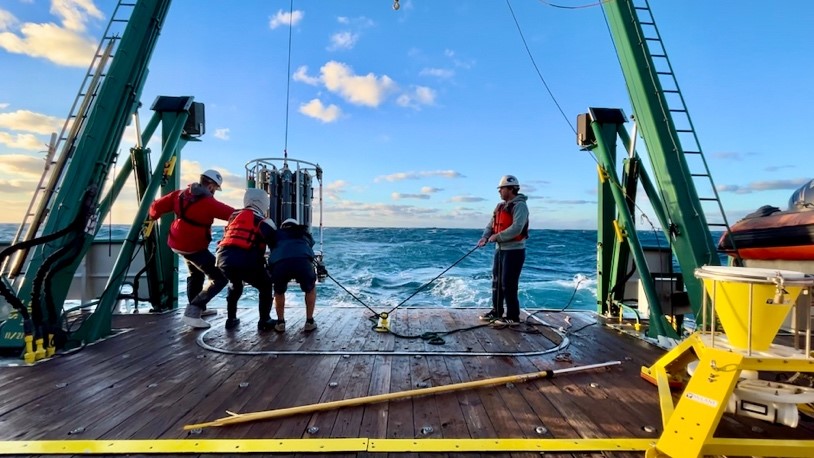 Results offer a glimmer of hope as climate change impacts coral reefs worldwide
Results offer a glimmer of hope as climate change impacts coral reefs worldwide
Researchers studying South Florida’s coral reefs found that the region’s nearshore reefs and more sheltered inshore areas are less vulnerable to ocean acidification than previously thought – a major climate-related threat to coral reefs as ocean waters absorb more atmospheric CO2 from the burning of fossil fuels.
This new study, led by scientists at the University of Miami Rosenstiel School of Marine, Atmospheric, and Earth Science, and the National Oceanic and Atmospheric Administration's (NOAA) Atlantic Oceanographic and Meteorological Laboratory (AOML), offers a glimmer of hope for Florida’s iconic coral reefs as ocean acidification, along with marine heat waves and other climate-related threats are impacting coral reefs worldwide.
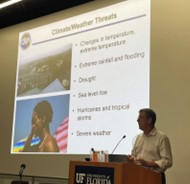 Special thanks to David Zierden (FSU), Emily Powell (FSU), Cori Matyas (UF), Kati Serafin (UF), Amy Clement (U Miami), David Keelings (UF), and Marshall Shepherd (UGA). Really an all-star line up to help attendees understand the data, changes and trends, and how it all connects to climate change. Watch here if you could not attend.
Special thanks to David Zierden (FSU), Emily Powell (FSU), Cori Matyas (UF), Kati Serafin (UF), Amy Clement (U Miami), David Keelings (UF), and Marshall Shepherd (UGA). Really an all-star line up to help attendees understand the data, changes and trends, and how it all connects to climate change. Watch here if you could not attend.
This annual event is a partnership between the FCI and CJC. Looking forward to #10!
Coverage in Invading Sea here.
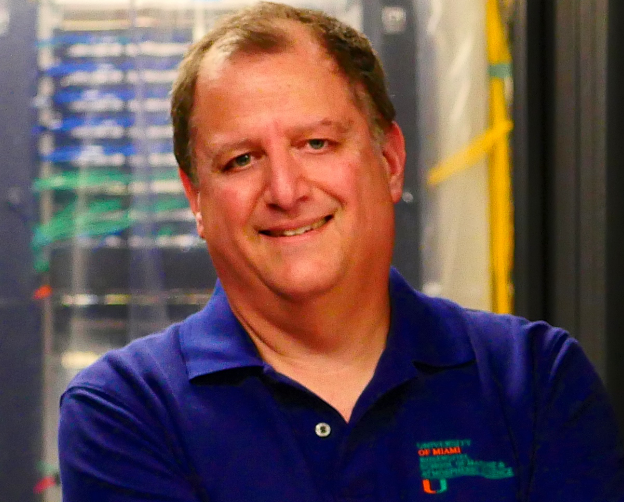 Ben Kirtman, Professor of Atmospheric Sciences and the William R. Middelthon, III Endowed Chair of Earth Sciences at the Rosenstiel School has been elected a 2023 Fellow of the American Geophysical Union for his fundamental work on tropical climate dynamics and climate prediction on timescales from days to decades.
Ben Kirtman, Professor of Atmospheric Sciences and the William R. Middelthon, III Endowed Chair of Earth Sciences at the Rosenstiel School has been elected a 2023 Fellow of the American Geophysical Union for his fundamental work on tropical climate dynamics and climate prediction on timescales from days to decades.
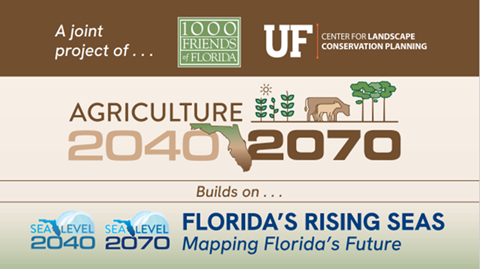 On Wednesday, January 24, the University of Florida Center for Landscape Conservation Planning and 1000 Friends of Florida released a new statewide GIS-based report, Agriculture 2040/2070. This report, downloadable maps, webinar broadcast, and more are available at 1000fof.org/ag2040-2070.
On Wednesday, January 24, the University of Florida Center for Landscape Conservation Planning and 1000 Friends of Florida released a new statewide GIS-based report, Agriculture 2040/2070. This report, downloadable maps, webinar broadcast, and more are available at 1000fof.org/ag2040-2070.
This study explores possible impacts of development and sea level rise on Florida’s agricultural lands and their conservation values. Building on the earlier Sea Level 2040/2070 study, it incorporates more comprehensive data on agriculture.
Florida’s agricultural lands provide essential ecosystem services including protecting water supply and quality, providing flood control, supporting climate resilience, sequestering carbon, harboring wildlife, promoting outdoor recreation, and more.
Agriculture is also a cornerstone of Florida’s economy. According to the University of Florida Institute of Food and Agricultural Science (IFAS), the direct economic contributions of the agriculture, natural resource, and food industries in 2019 included $106 billion in sales and 1,279,638 jobs.
Agriculture 2040/2070 sheds light on the significant threats facing these lands, and what can be done to lessen impacts over the coming decades.
We hope you'll take a few minutes to check out the website and read the report to learn more about this critical issue.
Our Kickoff event will be a U.S. Scholar Program Info Session on Tuesday, March 5th, featuring Keegan Scott, Institute of International Education Outreach and Recruitment Officer.
Please consider sharing the attached flyers and keep an eye on social media and our weekly newsletter for events throughout the month!
For more information, contact Claire Anumba at This email address is being protected from spambots. You need JavaScript enabled to view it. or visit our website.
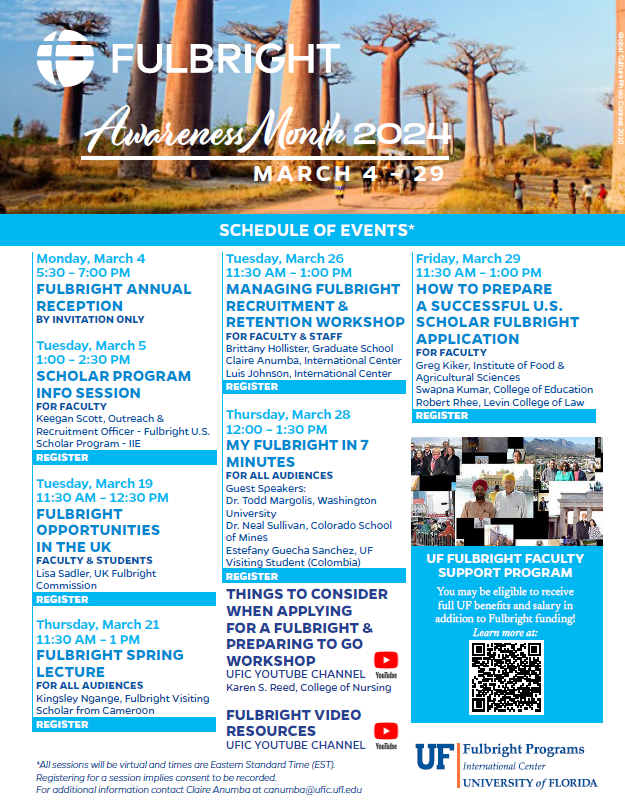
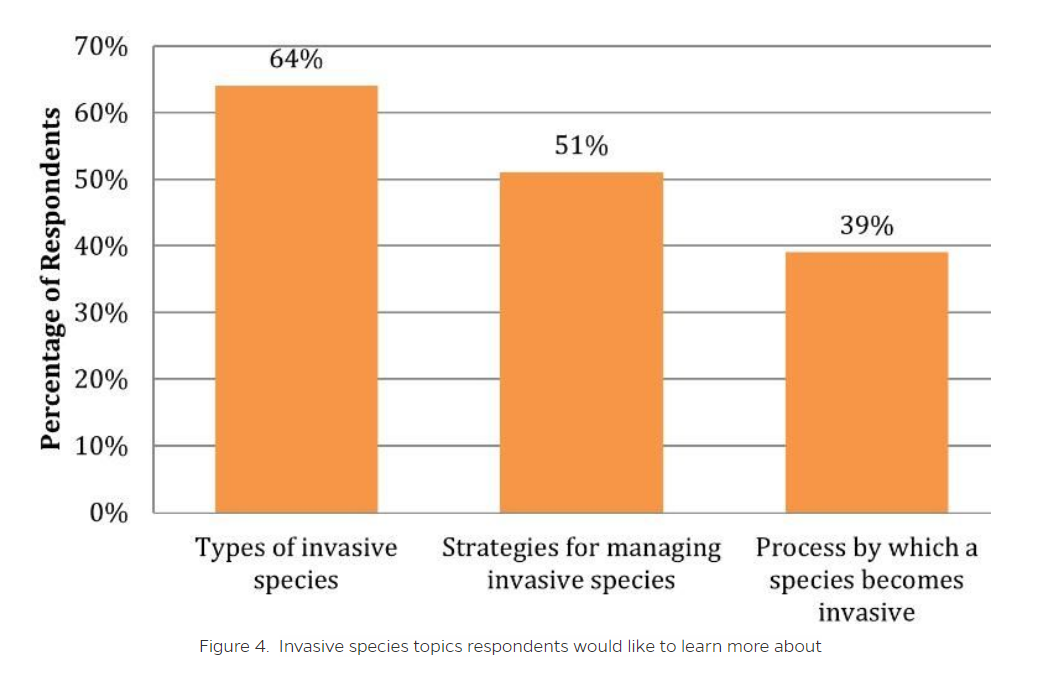 Invasive species are a serious threat in Florida. Invasive species are defined as non-native or exotic organisms, which cause ecological or economic harm or negatively affect human health in a new environment where they are not historically found (United States Fish and Wildlife Service [USFWS] 2012b). An invasive species can be a plant, animal, or other type of organism (Evans 2012). Because invasive species' natural predators and parasites usually are not present in the new environment, their populations can grow unchecked causing significant impacts in the new environment
Invasive species are a serious threat in Florida. Invasive species are defined as non-native or exotic organisms, which cause ecological or economic harm or negatively affect human health in a new environment where they are not historically found (United States Fish and Wildlife Service [USFWS] 2012b). An invasive species can be a plant, animal, or other type of organism (Evans 2012). Because invasive species' natural predators and parasites usually are not present in the new environment, their populations can grow unchecked causing significant impacts in the new environment
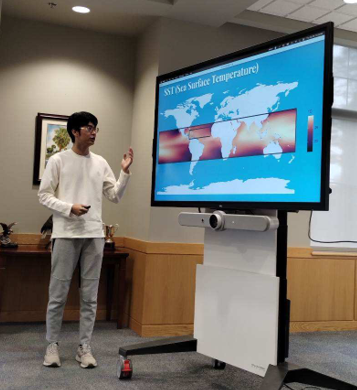 University of Florida students from several colleges/disciplines including Architecture, Geography, Anthropology, Statistics, Journalism, Forestry and Conservation, and Plant Sciences presented their findings from their year-long fellowship funded by the FCI. Many thanks to these students for their hard work and to their mentors for their inspiration!
University of Florida students from several colleges/disciplines including Architecture, Geography, Anthropology, Statistics, Journalism, Forestry and Conservation, and Plant Sciences presented their findings from their year-long fellowship funded by the FCI. Many thanks to these students for their hard work and to their mentors for their inspiration!
Deadline to apply for 2024-25 Fellowship at UF is March 22!
See details & application information here.
The University of Florida (UF) Student Senate passed a Green New Deal (GND) resolution Tuesday, with supporters saying they were the first public college in the country to do so.
The student government is calling for the university to implement the school’s Department of Sustainability climate plan, more transparency in investments that UF has in the private sector, the cutting off of any additional funding from the fossil fuel industry for research, divesting the school’s endowment from the fossil fuel industry and including groups in the plan that have been most impacted by climate change.
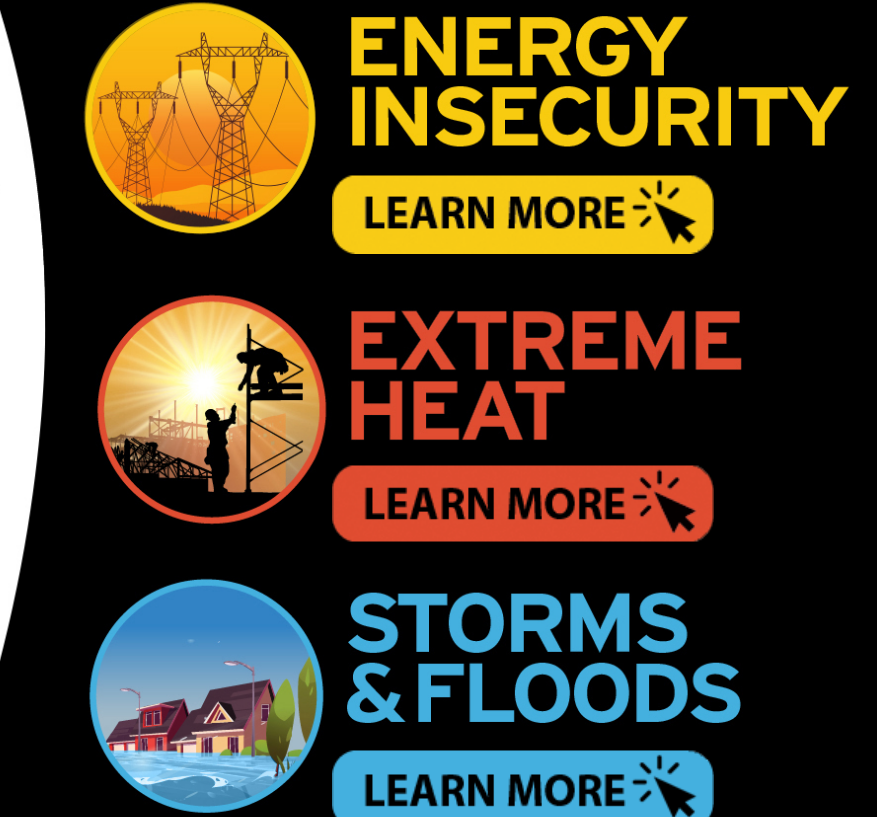 This platform utilizes public data from leading climate scientists to provide a comprehensive depiction of Florida's future climate challenges and economic impacts. Utilizing public data, this tool serves policymakers, researchers, and the public, actively contributing to fostering informed decision-making and proactive measures in the middle of Florida's evolving climate landscape.
This platform utilizes public data from leading climate scientists to provide a comprehensive depiction of Florida's future climate challenges and economic impacts. Utilizing public data, this tool serves policymakers, researchers, and the public, actively contributing to fostering informed decision-making and proactive measures in the middle of Florida's evolving climate landscape.
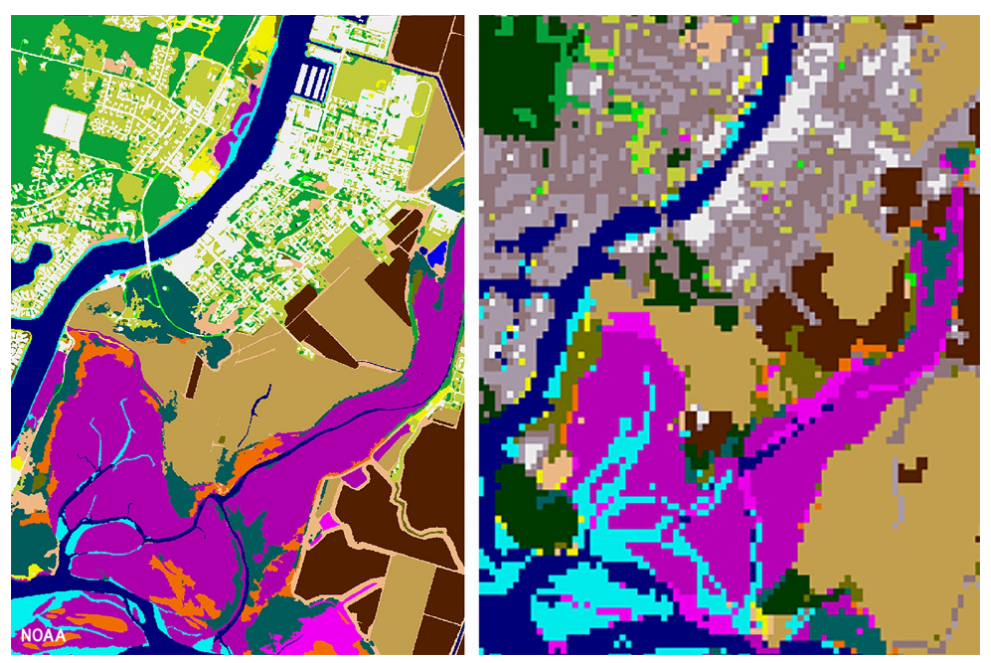 High-resolution land cover data is now available through NOAA’s Digital Coast. This data provides communities with the foundational data needed to assess coastal resources, analyze land use, prepare for disaster risks, and adapt to a changing climate.
High-resolution land cover data is now available through NOAA’s Digital Coast. This data provides communities with the foundational data needed to assess coastal resources, analyze land use, prepare for disaster risks, and adapt to a changing climate.
Land cover is a foundational data set that provides valuable information for a range of applications, including natural resource management, land use planning, disaster risk reduction, and climate adaptation. By comparing one year to another, people also use the information to document how the landscape has changed over time.
NOAA, in conjunction with several partners, released a high-resolution version of this data product, moving from 30-meter resolution to 1-meter.
The coldest winter temperature of the last few decades is a strong explanation of variations in mangrove species, size and coverage, in a new paper out in British Ecological Society. PhD student Yiyang Kang, Dr. David Kaplan and Dr. Michael Osland used this information to predict how mangroves on Florida's Gulf Coast will respond to rapid warming under climate change.
Read the full paper in the Journal of Ecology
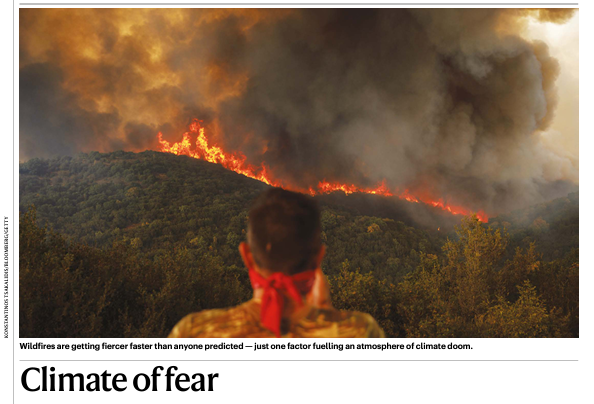
How should the public—and scientists—cope with the daunting uncertainties of climate change?. By Adam Sobel
Interesting piece in the journal Nature about the intersection of the planet’s future and the human condition.
Read the full article here
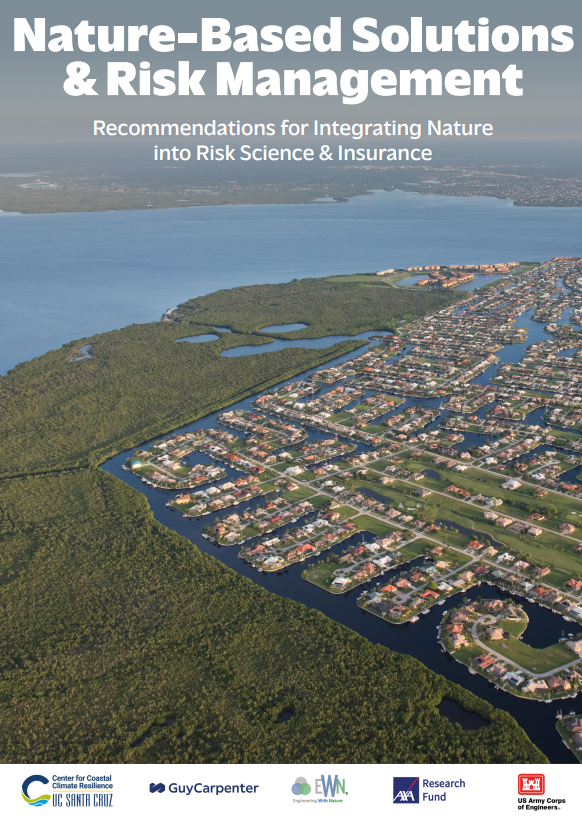 Risks from natural hazards are growing due to climate change and habitat loss. Both insurance and nature-based solutions (NBS) can play important roles in reducing risks. Practitioners in the fields of risk management, insurance, and environmental management have many common goals for assessing risks and developing practical tools for risk reduction.
Risks from natural hazards are growing due to climate change and habitat loss. Both insurance and nature-based solutions (NBS) can play important roles in reducing risks. Practitioners in the fields of risk management, insurance, and environmental management have many common goals for assessing risks and developing practical tools for risk reduction.
Read the full report here.
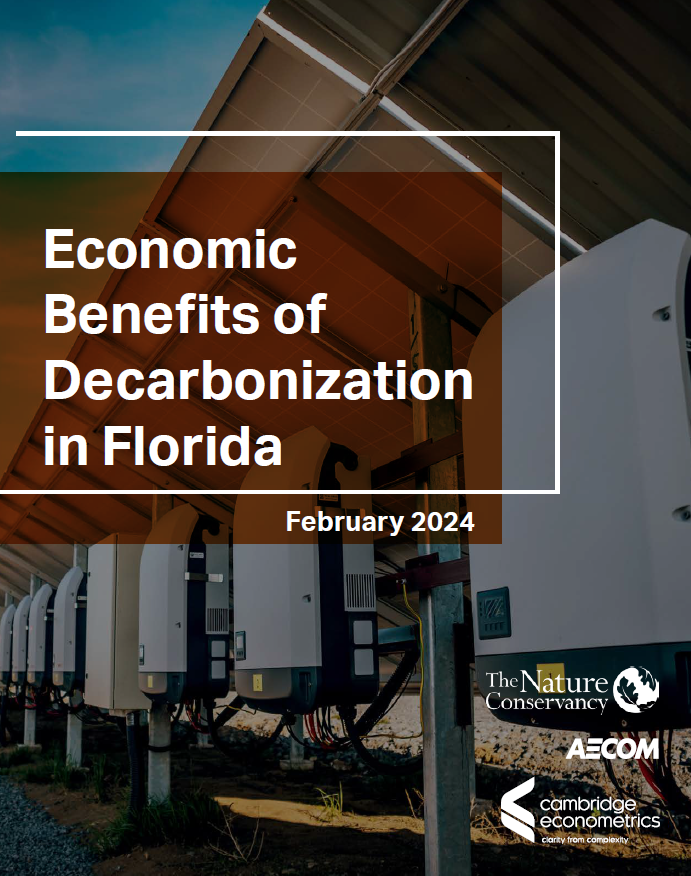 The Nature Conservancy (TNC) in Florida, with the expertise of AECOM and Cambridge Econometrics, has published a first-of-its kind economic study on the impacts of decarbonizing Florida’s economy: Economic Benefits of Decarbonization in Florida. The report looks at two decarbonization scenarios—achieving a power grid with net zero emissions by 2035 (Net Zero Power System) and achieving net zero emissions economy-wide by 2050 (Net Zero Economy). The decarbonization of our economy—reducing greenhouse gas emissions (including carbon dioxide) in manufacturing, transport, energy and other parts of our economy—can drive vast job growth and prosperity for Florida. Decarbonization will expand and create higher-paying jobs, offering opportunities for workers of all skills and education levels, as well as lower consumer costs. This report was built on the Getting to Neutral report that the FCI produced previously.
The Nature Conservancy (TNC) in Florida, with the expertise of AECOM and Cambridge Econometrics, has published a first-of-its kind economic study on the impacts of decarbonizing Florida’s economy: Economic Benefits of Decarbonization in Florida. The report looks at two decarbonization scenarios—achieving a power grid with net zero emissions by 2035 (Net Zero Power System) and achieving net zero emissions economy-wide by 2050 (Net Zero Economy). The decarbonization of our economy—reducing greenhouse gas emissions (including carbon dioxide) in manufacturing, transport, energy and other parts of our economy—can drive vast job growth and prosperity for Florida. Decarbonization will expand and create higher-paying jobs, offering opportunities for workers of all skills and education levels, as well as lower consumer costs. This report was built on the Getting to Neutral report that the FCI produced previously.
Read the full press release here.
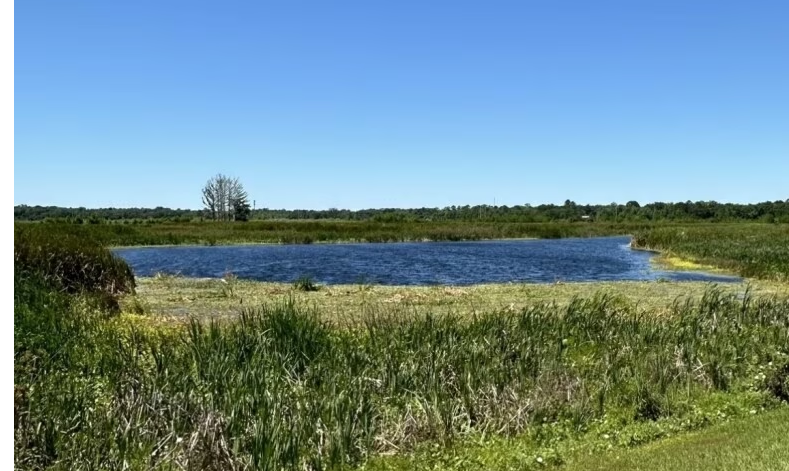 As Florida faces an influx of people and rapid land development, there are growing needs when it comes to effectively protecting critical landscapes.
As Florida faces an influx of people and rapid land development, there are growing needs when it comes to effectively protecting critical landscapes.
Researchers at the University of Florida Center for Coastal Solutions and Center for Landscape Conservation Planning recently developed a tool to help address some of those needs. The Land Conservation Optimizer Tool helps identify optimal conservation lands in Florida that could help improve water quality if they are protected, according to the UF Center for Coastal Solutions.
 Companies that proactively manage climate risks boost their valuations, while those with a passive stance are discounted in the equity market, according to new research.
Companies that proactively manage climate risks boost their valuations, while those with a passive stance are discounted in the equity market, according to new research.
A pioneering study from the University of Florida has quantified corporations’ exposure to climate change risks like hurricanes, wildfires, and climate-related regulations and the extent to which climate risks are priced into their market valuations. The research also exposes a costly divide – companies that proactively manage climate risks fare much better than those that ignore the threats.
The "Corporate Climate Risk: Measurements and Responses" is published in the Review of Financial Studies.
The research team also shared their climate risk measures at www.corporateclimaterisk.com
You can read more here.
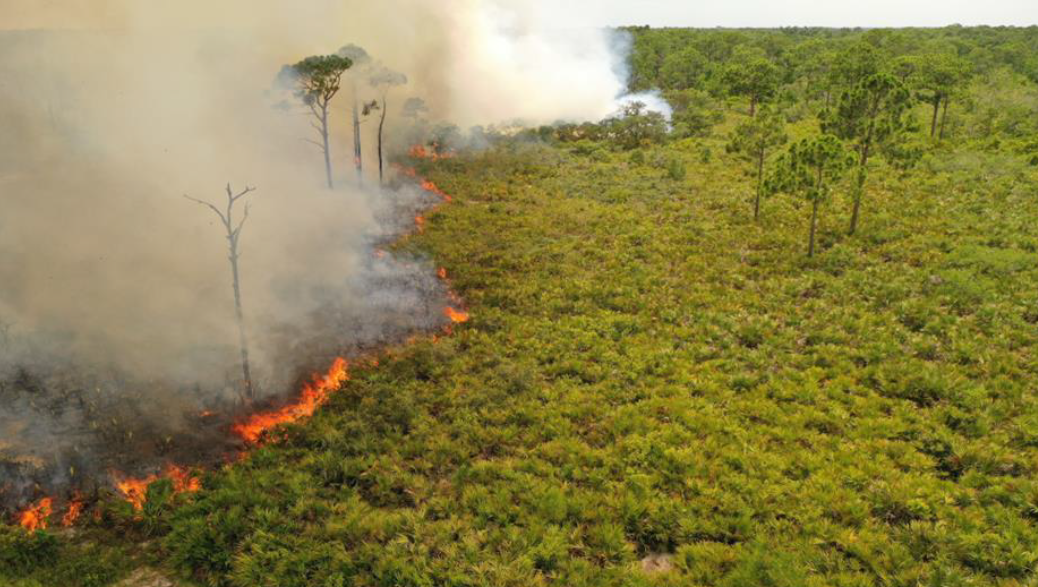 Florida is ground-zero for climate change impacts as our natural and human communities are forced to grapple with increasing heat, flooding, sea level rise, and wildfire risk.
Florida is ground-zero for climate change impacts as our natural and human communities are forced to grapple with increasing heat, flooding, sea level rise, and wildfire risk.
Archbold approached Florida Atlantic University to assess overlaps between land conservation in the Florida Wildlife Corridor and the resilience of the state’s nature and people to advancing climate change.
Archbold’s conservation program is using the Florida Wildlife Corridor and Climate Change Report’s results to credibly motivate the Corridor’s protection.
The report's executive summary is available here.
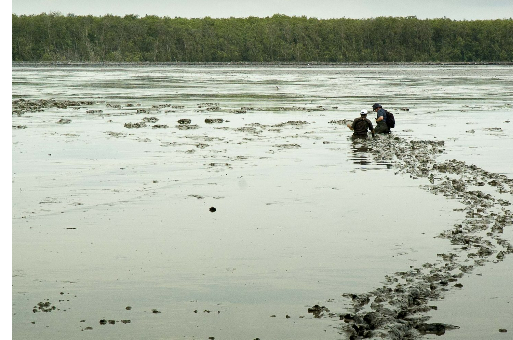 Mud holds profound insights into how our planet operates. It serves as a linchpin in how carbon moves around our planet. It’s a key player in regulating Earth’s climate by storing and cycling carbon. Mud also acts as a repository for organic carbon, playing a pivotal role in its sequestration and burial across landscapes.
Mud holds profound insights into how our planet operates. It serves as a linchpin in how carbon moves around our planet. It’s a key player in regulating Earth’s climate by storing and cycling carbon. Mud also acts as a repository for organic carbon, playing a pivotal role in its sequestration and burial across landscapes.
According to a comprehensive new study out in Nature Geosciences, University of Florida Geological Sciences Professor Thomas Bianchi and his colleagues document that mud, and the tremendous stores of organic carbon it holds within its matrix, is shifting where it is and isn't at a global scale due to human activity and climate change. These shifts have tremendous implications for the fate and carbon storage benefits of coastal wetlands, including salt marshes and mangrove forests, and as well as the rich biodiversity that is sustained by the world's tidal mudflats.
 As researchers increasingly face many kinds of attack over their work, there is debate about how to support and protect them.
As researchers increasingly face many kinds of attack over their work, there is debate about how to support and protect them.
Every day around the world, scientists are being abused and harassed online. They are being attacked on social media and by e-mail, telephone, letter and in person. And their reputations are being smeared with baseless accusations of misconduct. Sometimes, this escalates to real-world confrontations and attacks.
Such threats to scientists aren’t new; those researching climate change and gun control, for example, have endured abuse for decades.
FULL ARTICLE in Nature
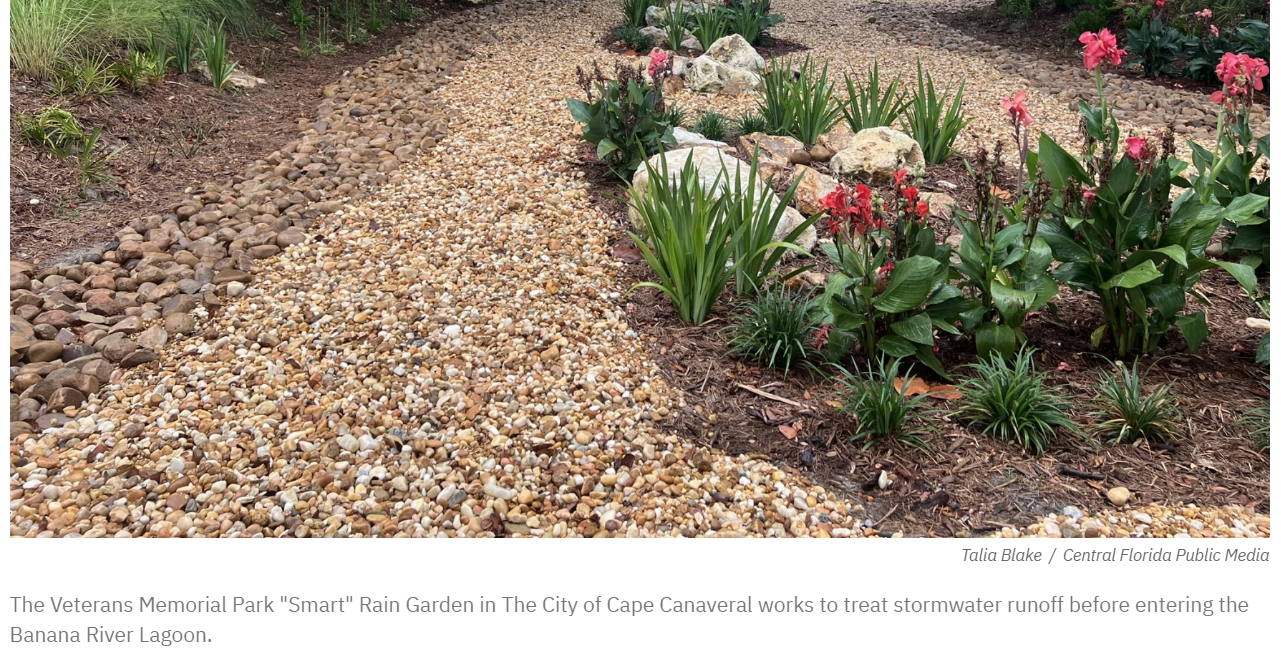 Climate change is impacting Central Florida municipalities’ budgets and is expected to cause major budget losses as cities rely on property taxes from coastal structures that may be underwater in the future, according to a study from researchers at Florida State University and Cornell.
Climate change is impacting Central Florida municipalities’ budgets and is expected to cause major budget losses as cities rely on property taxes from coastal structures that may be underwater in the future, according to a study from researchers at Florida State University and Cornell.
Researchers believe the United States will likely see two feet of sea level rise over the next 21 years, and chronic or bi-weekly flooding will cause property values to drop, among other things.
FULL STORY AND INTERVIEW with Linda Shi (Cornell), William Butler (FSU), and Zachary Eichholz (Cape Canaveral)
 The Florida Policy Project in partnership with Carolyn Kousky, PhD and Lorilee Medders, PhD, are releasing The Evolution of Florida’s Public Private Approach to Property Insurance. This extensive, deep-dive report provides a primer on Florida’s insurance market. The report describes in detail the past, current and future opportunities for property insurance in Florida.
The Florida Policy Project in partnership with Carolyn Kousky, PhD and Lorilee Medders, PhD, are releasing The Evolution of Florida’s Public Private Approach to Property Insurance. This extensive, deep-dive report provides a primer on Florida’s insurance market. The report describes in detail the past, current and future opportunities for property insurance in Florida.
FULL REPORT

High ocean heat content and the anticipated development of La Niña are expected to fuel an above average hurricane season in the North Atlantic this year, according to the US National Oceanic and Atmosphere Administration (NOAA).
NOAA’s Climate Prediction Center forecasts a range of 17 to 25 named storms (average is 14). Of those, 8 to 13 are forecast to become hurricanes (average is 7), including 4 to 7 major hurricanes (average is 3).
FULL STORY
NBC MIAMI STORY with John Morales
 Claudia Sheinbaum, a climate scientist and former mayor of Mexico City, became the first woman to be elected president of Mexico, winning Sunday’s vote in a landslide.
Claudia Sheinbaum, a climate scientist and former mayor of Mexico City, became the first woman to be elected president of Mexico, winning Sunday’s vote in a landslide.
Sheinbaum, 61, received nearly 58 percent of the vote, according to preliminary results from the Mexican electoral office.
 In episode 210 of America Adapts, Dr. Carolyn Kousky, Associate Vice President for Economics and Policy at the Environmental Defense Fund, returns to discuss the climate challenges in Florida's property insurance market. She outlines how Florida faces significant economic risks due to hurricanes and other disasters, with 36 presidential disaster declarations since 2000.
In episode 210 of America Adapts, Dr. Carolyn Kousky, Associate Vice President for Economics and Policy at the Environmental Defense Fund, returns to discuss the climate challenges in Florida's property insurance market. She outlines how Florida faces significant economic risks due to hurricanes and other disasters, with 36 presidential disaster declarations since 2000.
The episode delves into the complexities of the state's insurance system, focusing on three key programs: Citizens Property Insurance Corporation, the Florida Hurricane Catastrophe Fund, and the Florida Insurance Guarantee Association.
Dr. Kousky addresses the reliance on smaller insurance companies; the critical role of reinsurance; and the impact of climate change on insurance pricing and availability. Doug and Carolyn have a broader conversation about the insanity of the Florida system of the existing property insurance market and how it could lead to price gouging for Florida citizens living in less at risk areas of the state.
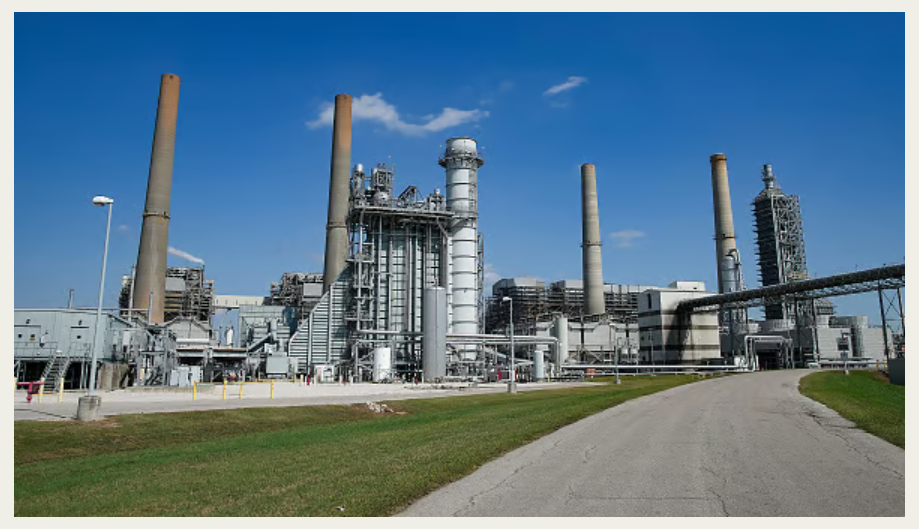 This spring, Democrats wrapped up a nearly three-year investigation into the fossil fuel industry’s role in climate disinformation, and asked the Department of Justice to pick up where they left off.
This spring, Democrats wrapped up a nearly three-year investigation into the fossil fuel industry’s role in climate disinformation, and asked the Department of Justice to pick up where they left off.
In House and Senate Democrats’ final report and hearing, investigators concluded that major oil companies had not only misled the public on climate change for decades, but also were continuing to misinform them about the industry’s preferred climate “solutions”— particularly biofuels and carbon capture.
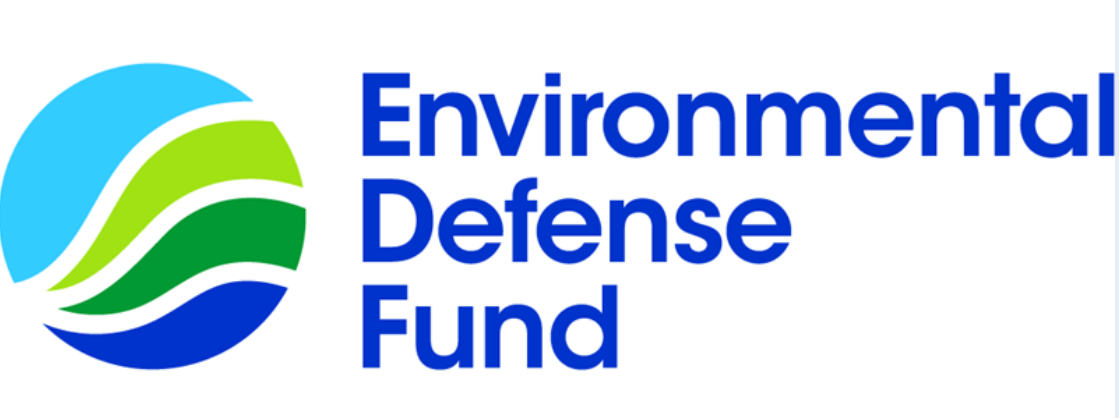 Environmental Defense Fund, a nonprofit that advocates for coastal and flood resilience, is seeking input to position Florida as a leader in nature-based solutions (NBS), including natural areas and artificial structures that harness nature.
Environmental Defense Fund, a nonprofit that advocates for coastal and flood resilience, is seeking input to position Florida as a leader in nature-based solutions (NBS), including natural areas and artificial structures that harness nature.
Professionals working in Florida on any aspect of implementing NBS, from planning and constructing to monitoring and maintenance, are encouraged to complete a brief survey identifying recommendations that reduce barriers to and incentivize these vital solutions.
 Check it out these innovative ideas for managed retreat by A.R Siders et. al.
Check it out these innovative ideas for managed retreat by A.R Siders et. al.
 The United States faces an increasingly complex set of challenges from shocks and stressors to our systems. By understanding these challenges and applying a unified, whole community approach to addressing them, we can strengthen our collective security and resilience so that we can overcome these ever-evolving challenges and thrive as a nation.
The United States faces an increasingly complex set of challenges from shocks and stressors to our systems. By understanding these challenges and applying a unified, whole community approach to addressing them, we can strengthen our collective security and resilience so that we can overcome these ever-evolving challenges and thrive as a nation.
Read the FULL REPORT

By A.R Siders
U.S. towns are building new housing and infrastructure in their floodplains – but not as much as expected, and the tools to stop it may be more routine than we imagined.
Those are the key takeaways from two new papers: one in Oxford Open Climate Change OUP Academic (Siders et al.) today and one in Earth’s Future last week (Agopian et al). The findings could change how advocates, floodplain managers, and a new administration, think about policy reforms for flood risk management.

An increase in extreme heat and severe droughts lops off about 0.2% of a country’s GDP, a new study found.
Severe weather costs the global economy billions of dollars a year, highlighting the costs of climate change and the value of mitigating extreme weather, according to a new analysis of weather and economic data.
“This research gives guidance to policymakers to consider what kind of extreme events we should adapt to,” said Berkay Akyapi, Ph.D., co-author of the new study and a professor of business at the University of Florida. “If we don’t do anything to respond to these climate shocks, we are hurting the economy.”

A new interagency resource on U.S. sea level change, SeaLevel.GlobalChange.gov, is now available to the public. This platform represents the first whole-of-government resource for coastal residents and decision-makers on sea level rise projections, associated impacts, and adaptation measures.
This site pairs a dynamic delivery of the latest research on sea level change with foundational educational content on how and why sea level rise is happening, its impacts, and actions that can be taken to address the challenges coastal communities face from rising seas.
Explore more and register for webinar at https://sealevel.globalchange.gov/
The USGCRP also released a new federal interagency resource to support people in teaching, communicating, and making decisions about climate change. Climate Literacy: Essential Principles for Understanding and Addressing Climate Change presents information that is important for individuals and communities to understand about Earth’s climate, impacts of climate change, and solutions.

FCI Co-Director, Sadie Ryan, contributes to this important piece.
Some researchers have described this as a steady move to "a warmer, sicker world". But to understand why this is happening, we need to understand a little more about the biology of mosquitoes and their life cycles.
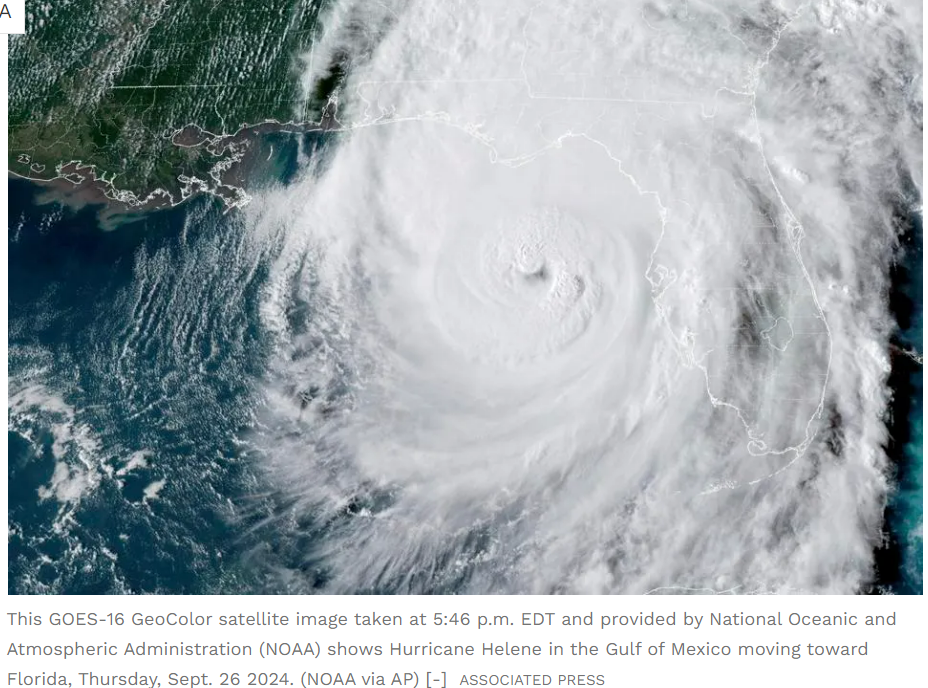 By Marshall Shepherd via Forbes
By Marshall Shepherd via Forbes
Hurricane Helene did what a Category 4 storm does. It caused destruction through extreme winds, storm surge, rainfall, and tornadoes. The sheer size of the storm also extended those impacts across many states.
Earth faces a climate emergency which renders conservation goals largely obsolete. Current conservation actions are inadequate because they (i) underplay biodiversity's role in maintaining human civilisation, which contributes to its marginalisation, and (ii) rely on false assumptions of how to catalyse transformative change.

The University of Miami research will engage a wide array of stakeholders across five key themes: western water resources, heat waves, coastal flood risk, wildfire risk, and extreme wind events. It aims to provide access to crucial datasets and analysis procedures while promoting education for the next generation of climate projection translators.



